ENB+ Coverage of Selected Side Events at the Katowice Climate Change Conference, 13 December 2018
3-14 December 2018 | Katowice, Poland
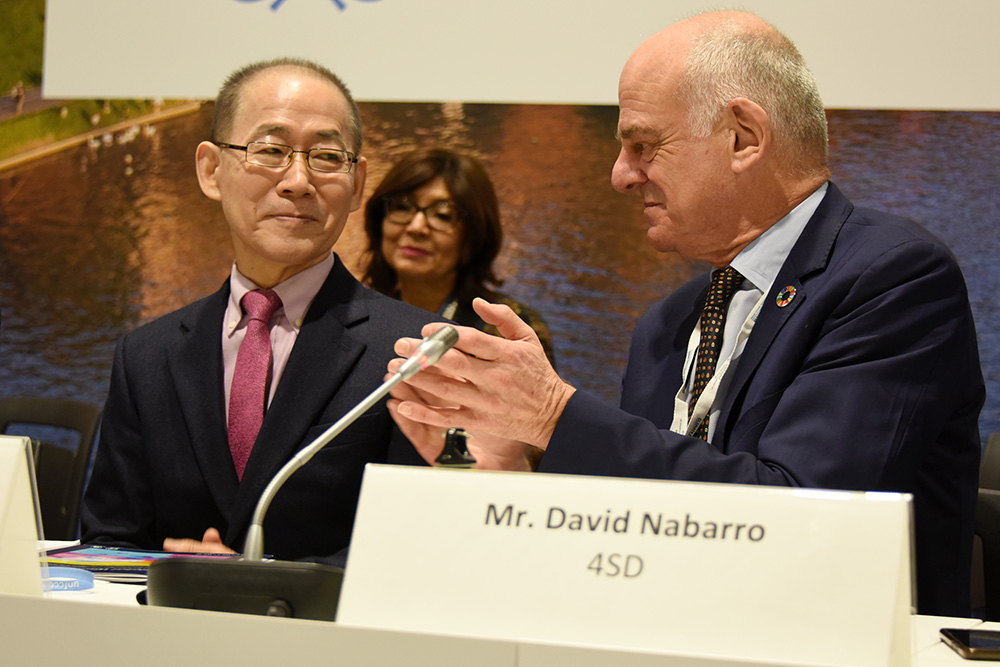
The following events were covered by IISD Reporting Services on Thursday, 13 December 2018:
- We Can Still End Hunger by 2030 If We Take Ambitious Climate Action
- Our Fijian Story for a Low-Carbon Development Pathway
- Building Knowledge on Climate-Smart Agriculture – Launch of the 4 E-learning Modules on Water, Soil, Crops and Livestock
Photos by IISD/ENB | Natalia Mroz / Diego Noguera
For photo reprint permissions, please follow instructions at our Attribution Regulations for Meeting Photo Usage Page
We Can Still End Hunger by 2030 If We Take Ambitious Climate Action
Presented by the Food and Agriculture Organization of the UN (FAO)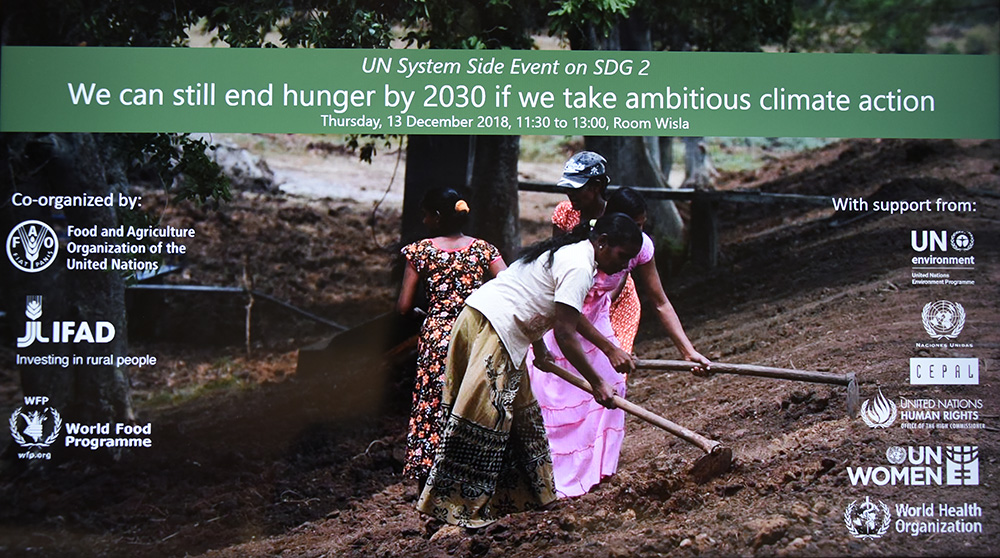
This panel, co-organized by FAO, the International Fund for Agricultural Development and the World Food Programme, brought together high-level actors to: discuss the nexus of climate action, food systems and human nutrition; and share examples of the solutions to ending hunger and building ambitious climate action. Zitouni Ould-Dada, FAO, set the scene by explaining that: global diets have caused negative impacts for human health, the economy and the environment; and agriculture and food security are key to addressing climate change.
Maria Helena Semedo, Deputy Director-General, FAO, spoke about the current state of world hunger, malnutrition and poverty, noting that the current scientific and political consensus is that, while humans produce enough food to feed the planet, hunger remains on the rise—and that global warming of 2°C will make the task of its elimination much more difficult. She urged everyone tot help scale climate action beyond policy development, including by investing in women’s education and leadership, in order to reshape the food system towards sustainability and equity for all in a low-carbon economy.
Hoesung Lee, IPCC Chair, reported back on the Panel’s Special Report on 1.5°C (SR15), and said that, of all the Sustainable Development Goals (SDGs), SDG 2 (zero hunger) is one of the most important and at the heart of the IPCC’s work. Lee pointed out the SR15’s conclusions that carbon sequestration is essential to restoring soil quality and removing atmospheric CO2. He reiterated the Special Report’s three key messages:
- every bit of warming matters;
- every year matters; and
- every choice matters.
David Nabarro, Skills, Systems & Synergies for Sustainable Development (4SD), clarified that climate action requires a four-part transformation of food systems, saying that they must: yield nutritious and healthy food for all; restore ecosystems everywhere; provide decent livelihoods for agricultural and food workers; and contribute to mitigation while helping with adaptation. He expressed his satisfaction that the UN Secretary-General’s 2019 Climate Summit will place a large emphasis on agriculture and natural ecosystems, and stressed that agriculture and food systems can contribute to 30% of global emission reductions by 2030.
Joseph Jouthe, Minister of Environment, Haiti, shared some of his country’s experiences in mobilizing to avoid soil degradation on agricultural lands while preserving food security. He also recounted that intensifying agroforestry systems by converting marginal agricultural land, as well as promoting more energy-efficient dietary habits, have positively contributed to food and land systems in Haiti. Jouthe concluded by urging participants to reinforce interactions between the climate action community and the developing world.
Ryszard Zarudzki, Ministry of Agriculture and Rural Development, Poland, said that climate change has a negative impact on food security, including in Poland, where agriculture has already been affected by drought, precipitation and early frosts. He also raised the challenge of helping farmers adapt towards climate-friendly practices in the context of the European Union’s Common Agricultural Policy. Speaking specifically about Polish adaptation strategies, he stressed the need for early warning systems, innovation on farms, and better advice and consulting for producers.
Pramisha Thapaliya, Youth NGO (YOUNGO), stressed that smallholder farmers are some of the first affected by climate change, clarifying that poverty, climate change and hunger are linked. She suggested that focusing on smallholder adaptation can play a valuable role in climate action, highlighting the needs of recognizing local and indigenous knowledge in adaptation, and helping farmers understand how they can best adapt through practices and systems such as agroforestry and agroecology. She concluded by emphasizing that acting locally and regionally is essential to achieving zero hunger.
Raphaël Podselver, ProVeg, began by arguing that reducing the consumption of animal products is a significant way of achieving global targets and goals, including SDG 2. He pointed to policies across the world, such as food waste laws and policies on dietary guidelines, which have successfully helped to reduce CO2 emissions by helping to shift consumption towards more balanced, plant-based diets. He concluded by stressing the need to focus on younger generations.
In the following discussion, panelists and participants addressed: the importance of plant-based diets and the emissions impacts of beef production; the role of smallholder farmer cooperatives and the importance of land access; forms of food production which move beyond land-based agriculture; cultural barriers associated with shifting meat consumption, particularly in Eastern European countries; criticisms of input-based models of food production and the importance of shifting mindsets towards circular food economies; and the dual burden of malnutrition across the world, through both micronutrient deficiencies and obesity.
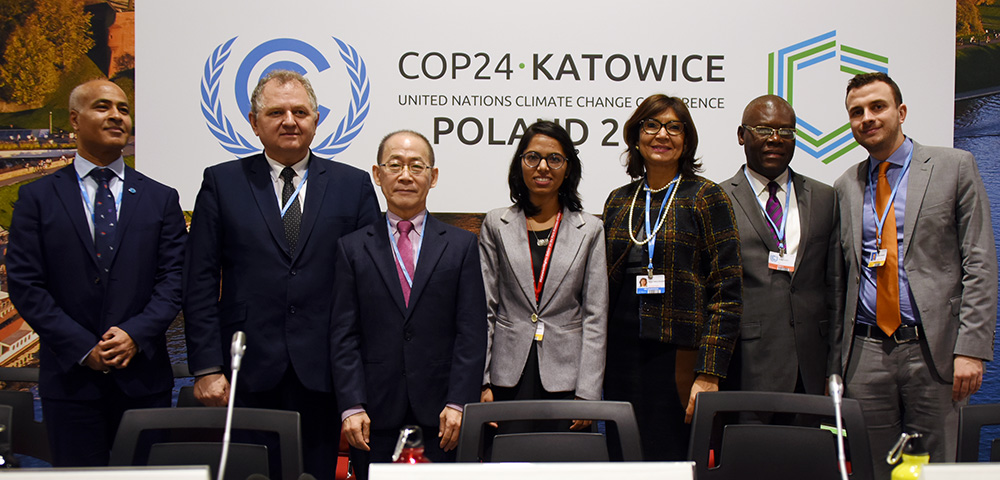
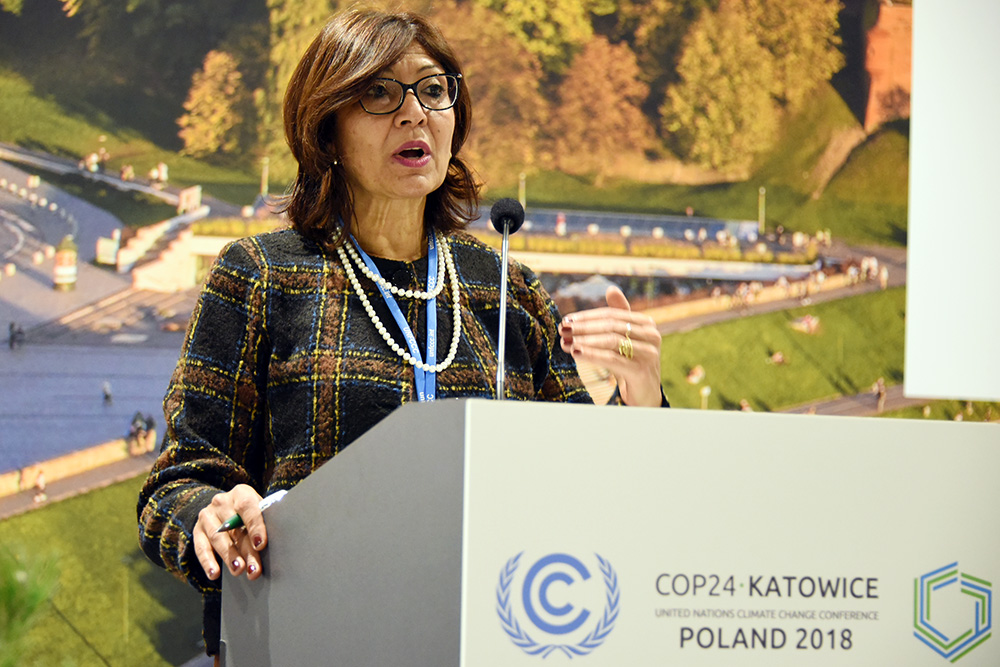
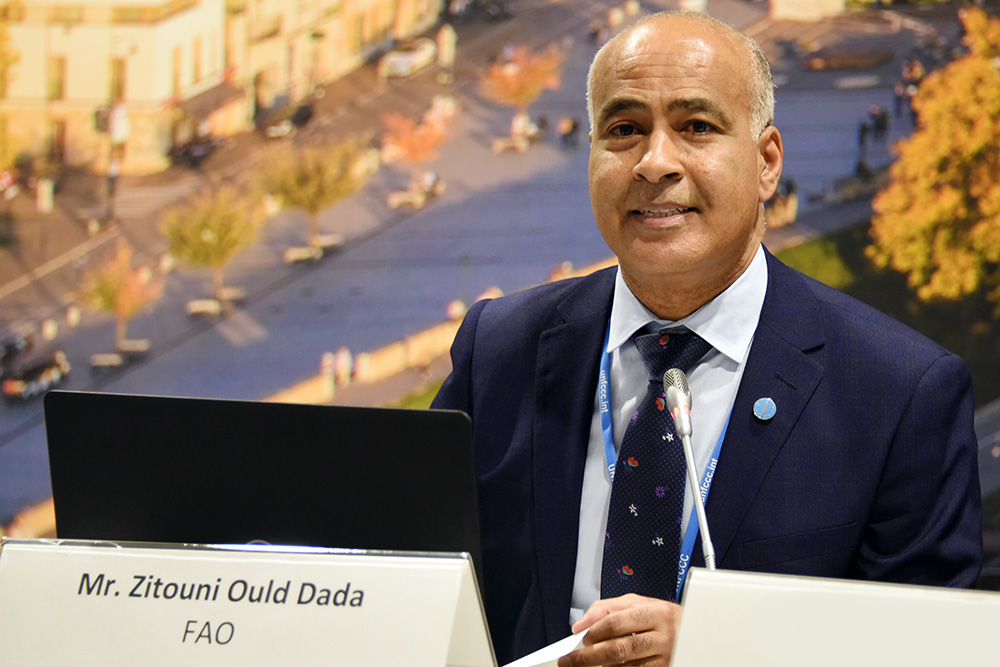
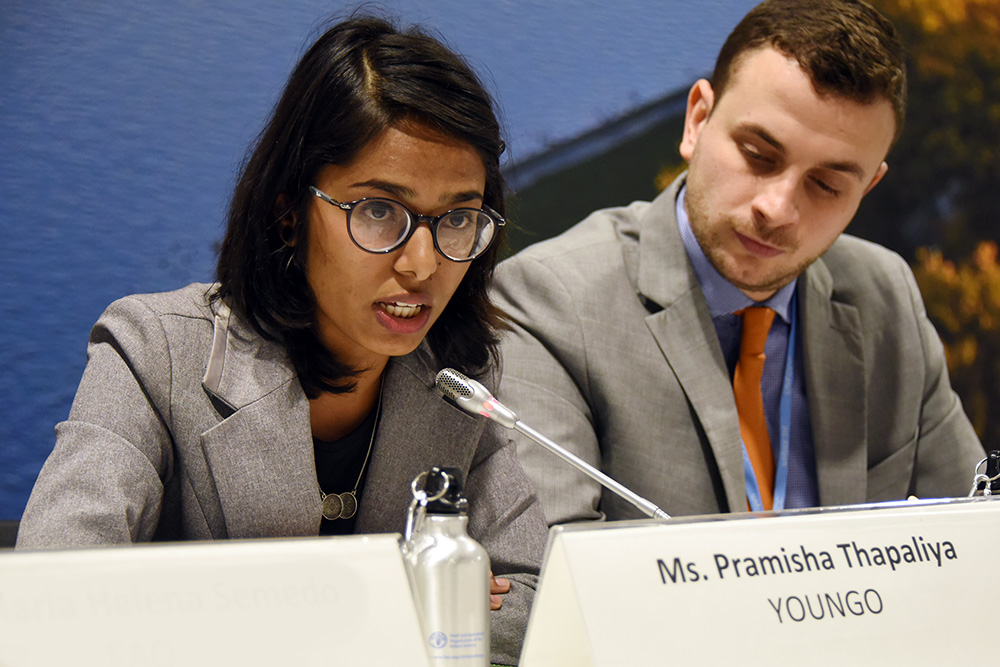
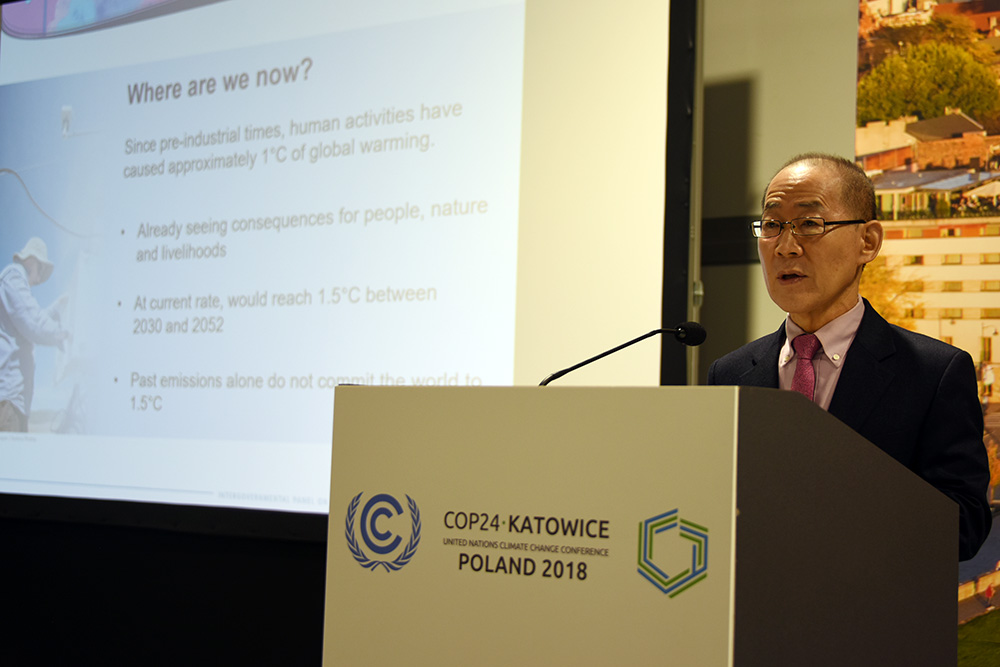

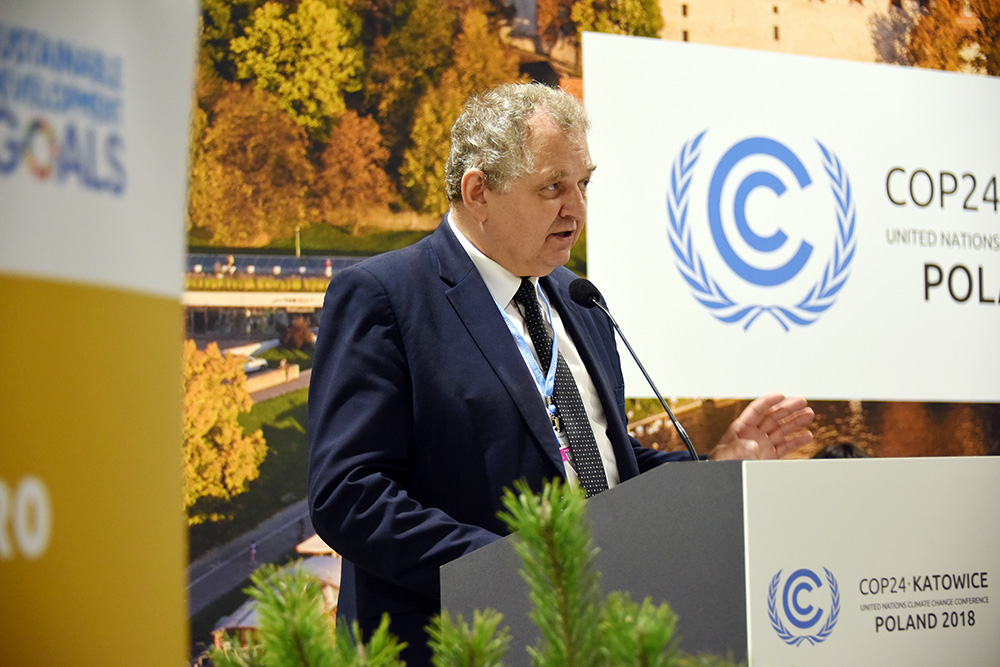
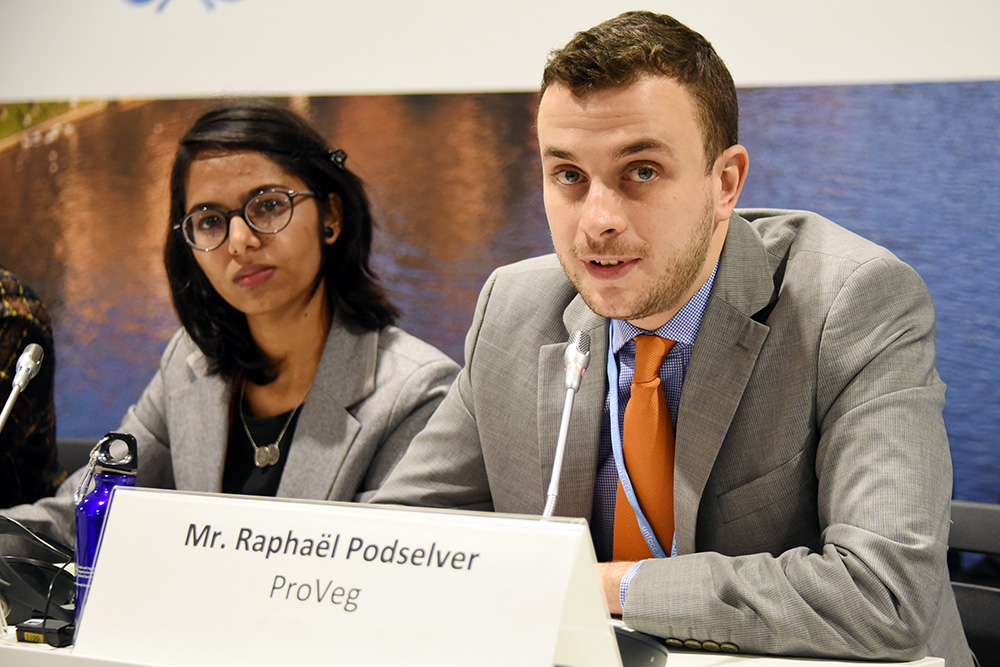
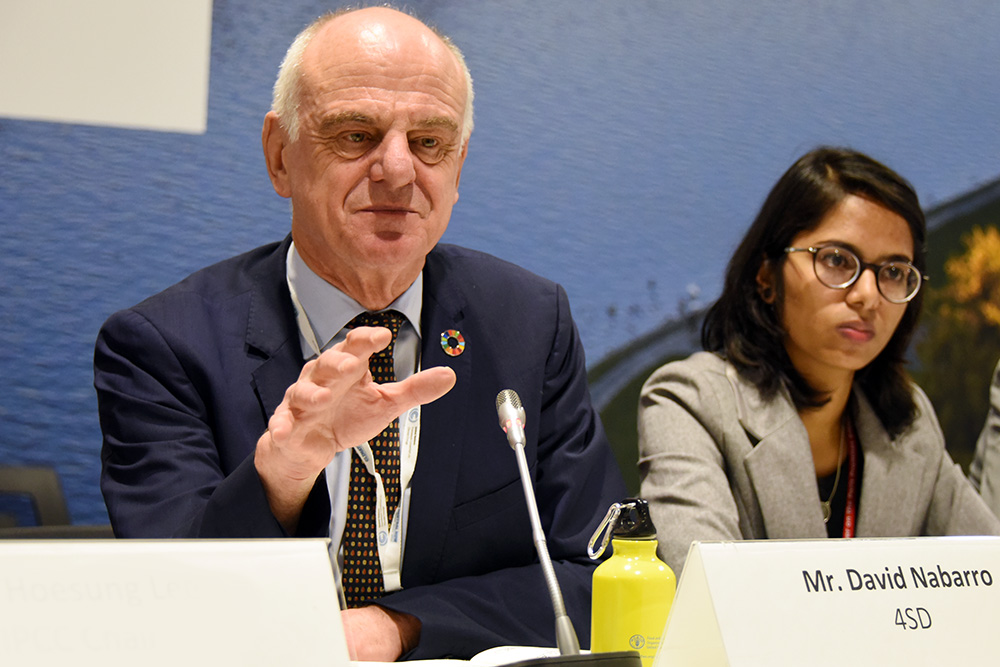
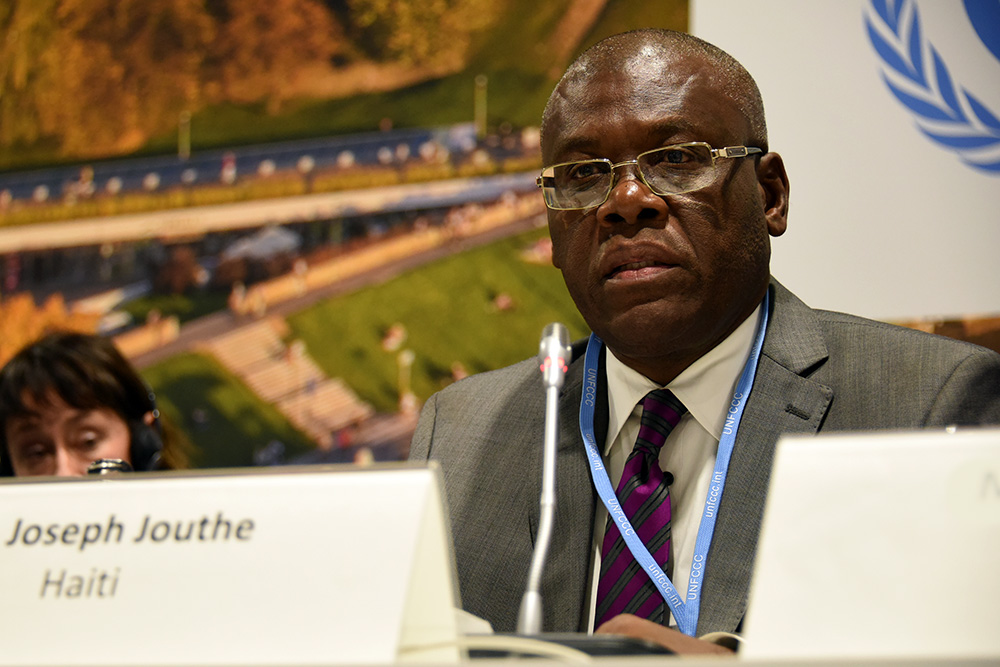
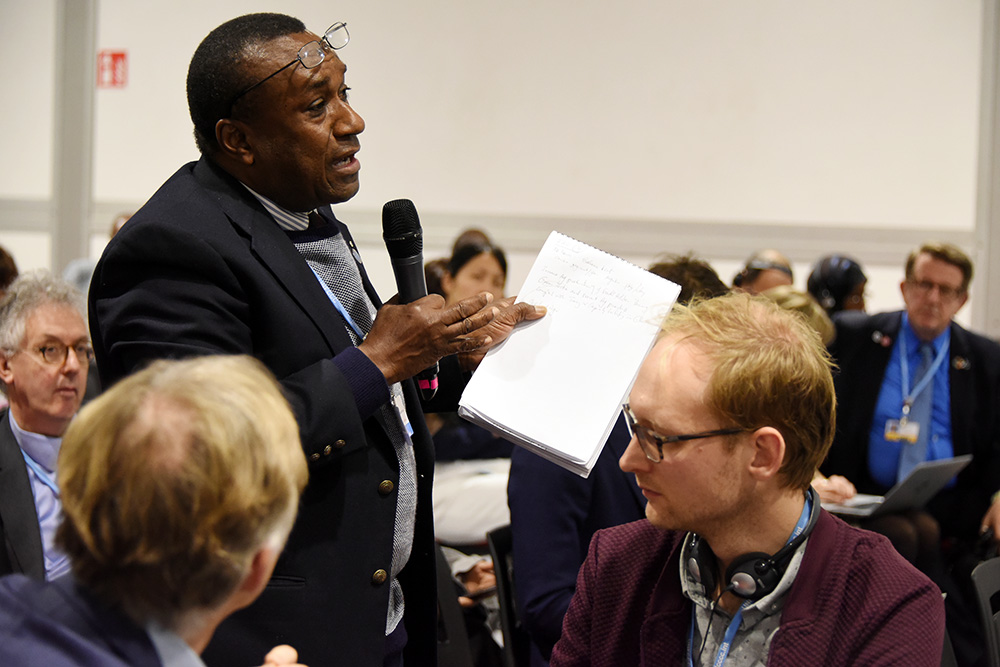
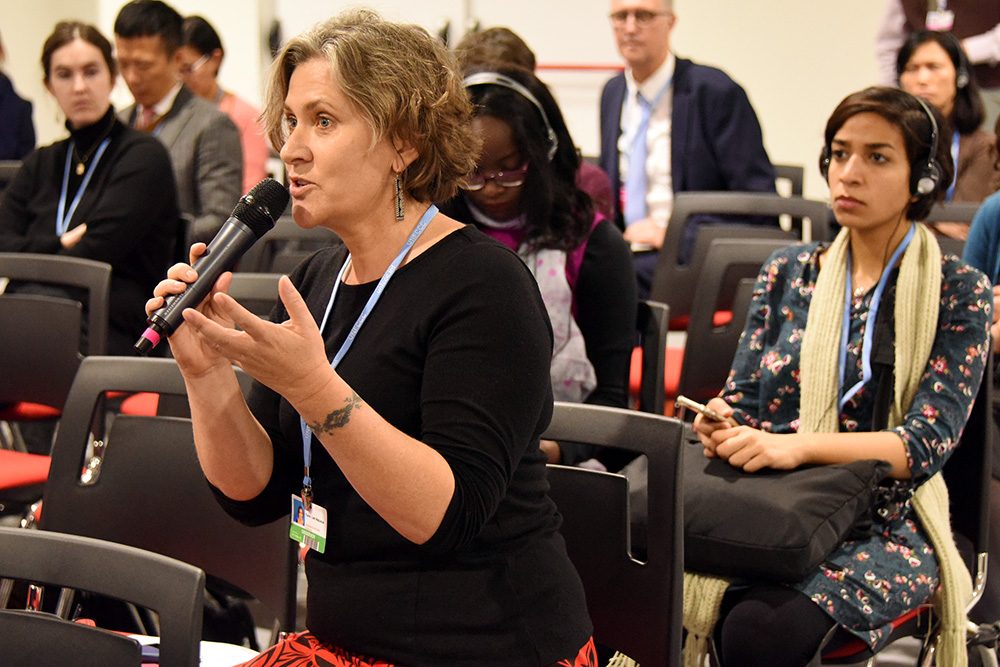
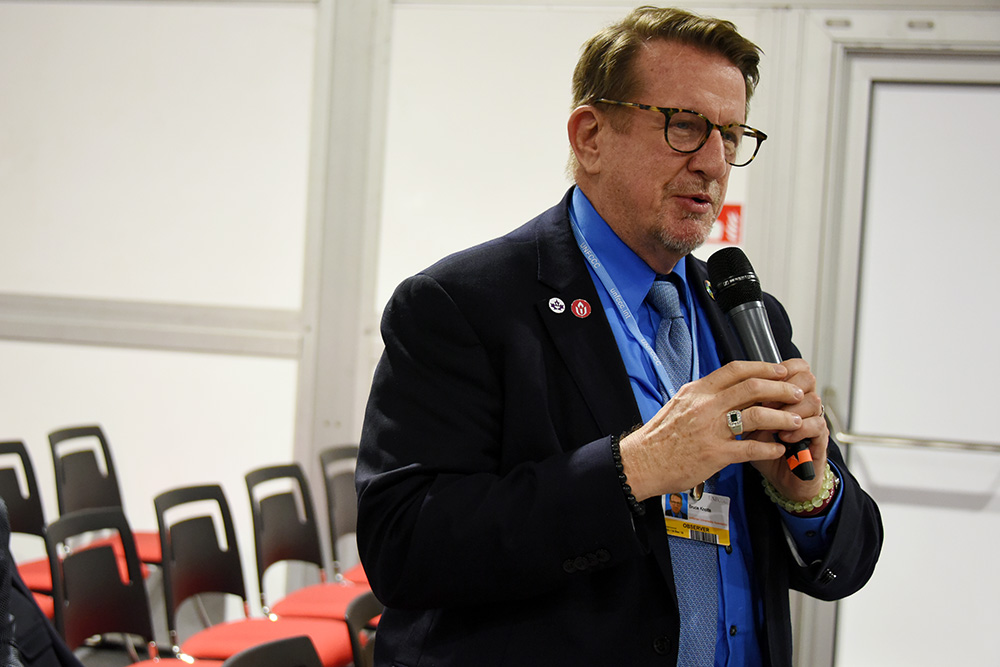
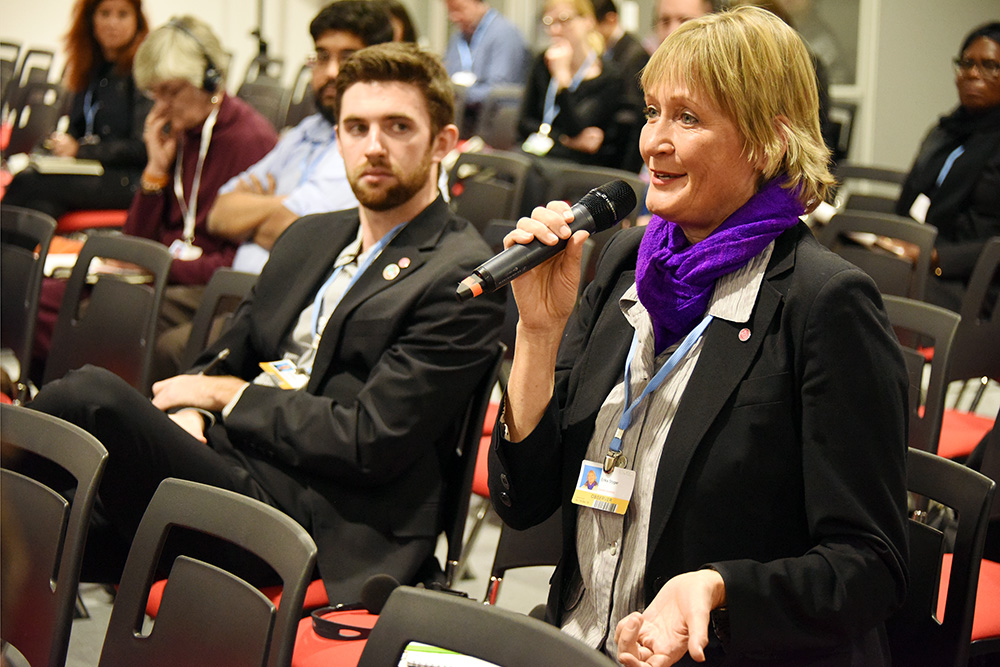
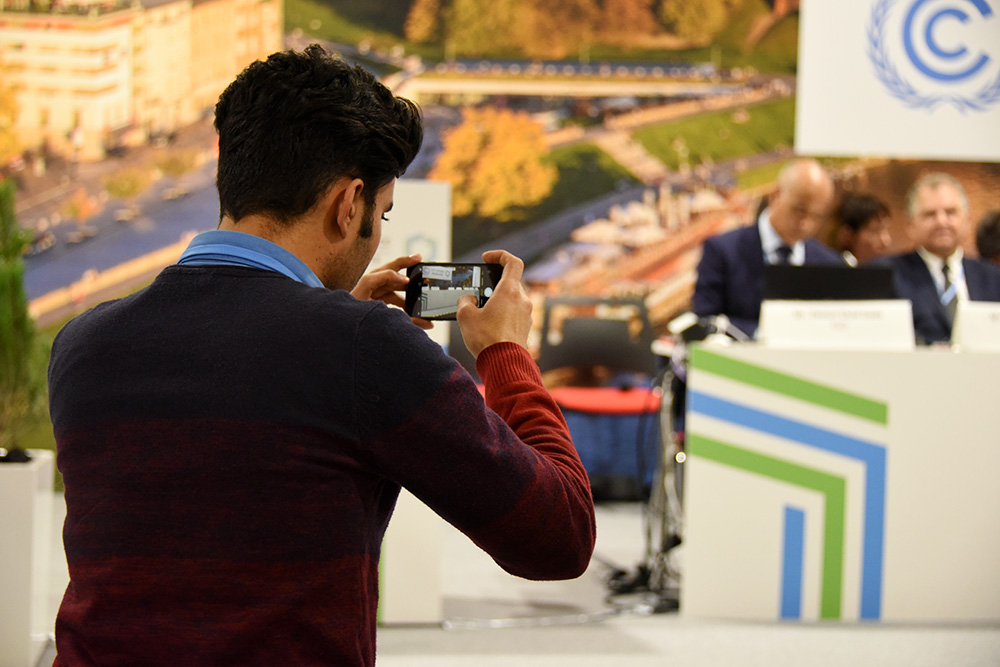
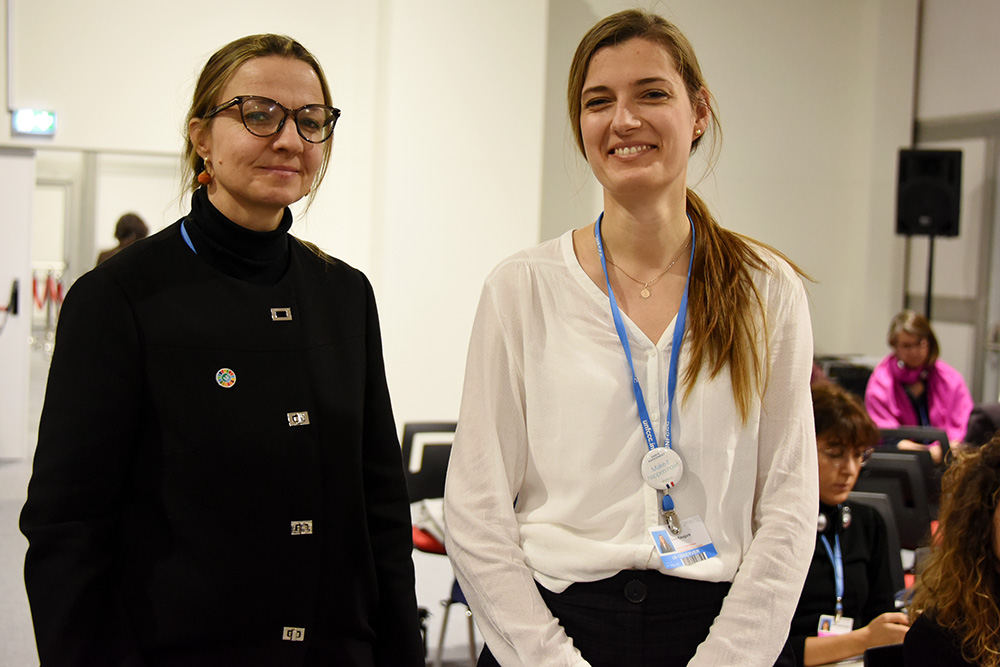
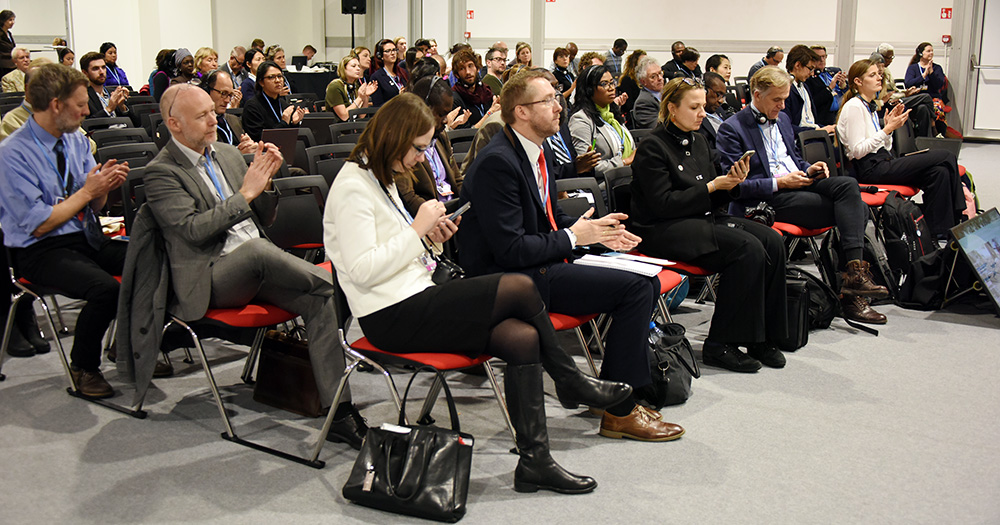
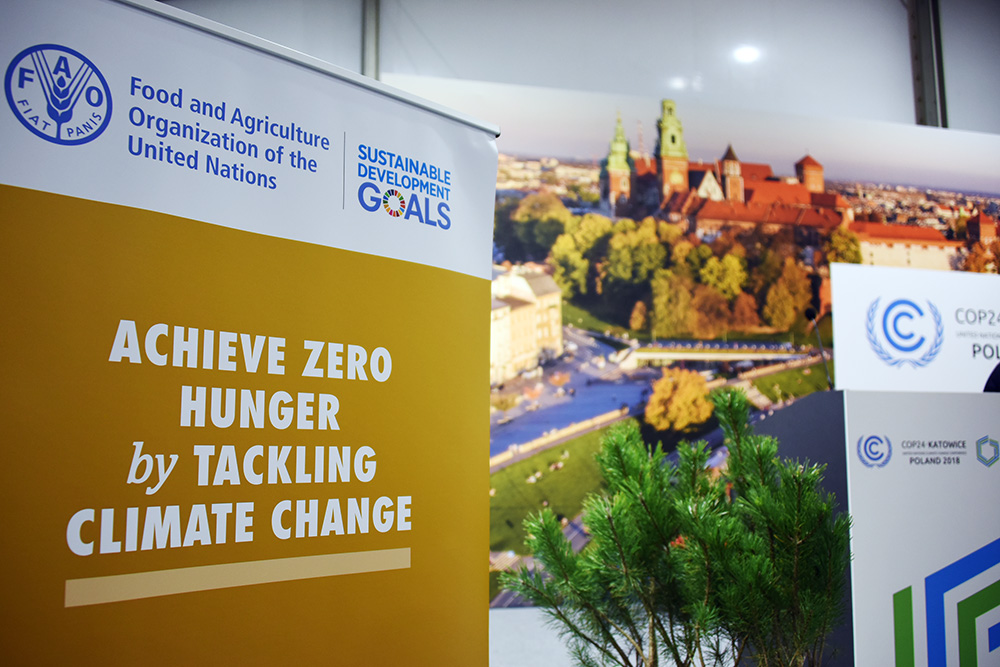
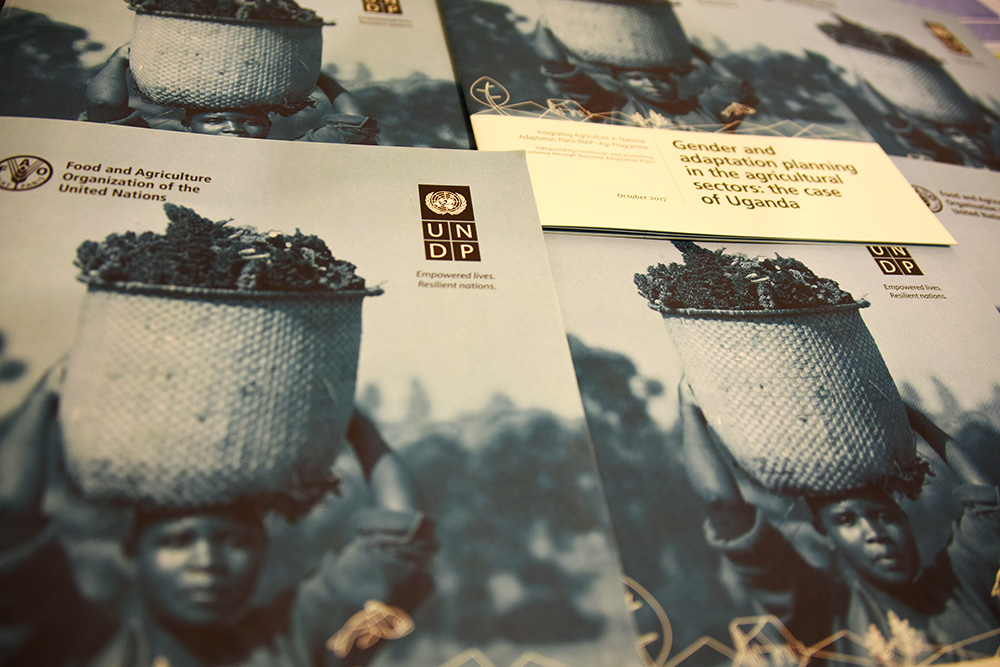
Our Fijian Story for a Low-Carbon Development Pathway
Presented by the Global Green Growth Institute (GGGI)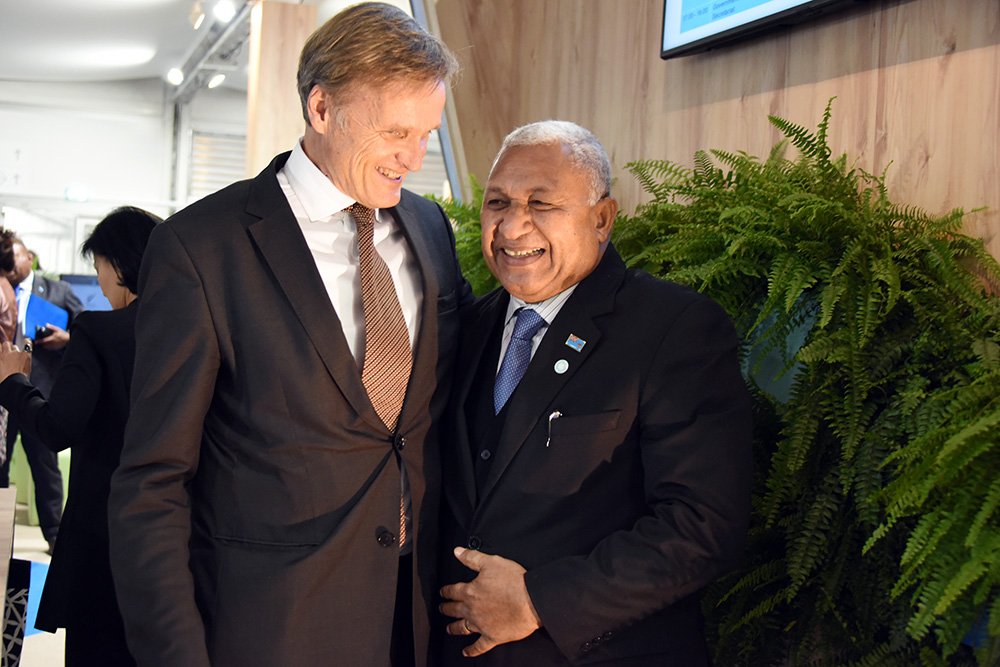
This side event demonstrated efforts by Fiji to implement the Paris Agreement by officially launching its Low Emission Development Strategy (LEDS) (2018-2050) and committing to achieve net zero carbon emissions by 2050. The event looked at Fiji’s ambitious targets in the LEDS to reduce emissions and deeply decarbonize the Fijian economy and transition to sustainable green growth. It also shared the results, consultative process, methodology, and lessons learned from the Fiji LEDS journey. Deepitika Chand, Ministry of Economy, Fiji, moderated the event.
Frank Bainimarama, Prime Minister of Fiji and COP 23 President, highlighted that Fiji and the Marshall Islands were the first two nations worldwide to raise the ambition of their Nationally Determined Contributions (NDCs), and noted that Fiji could not have hosted COP 23 without the German government’s generosity. He noted that the Talanoa Call for Action expresses the need to act towards achieving the goals of the Paris Agreement and expressed the commitment of the Fijian government to lead by example in achieving net zero carbon emissions by 2050. Bainimarama underlined that, despite Fiji’s greenhouse gas (GHG) emissions constituting a mere 0.006% of global emissions, more can be done through political will. He stressed that Fiji is the first small island developing state to include the blue carbon sector in their LEDS, including mangrove ecosystems. He expressed gratitude towards GGGI for the technical expertise provided in developing the Strategy and stressed that increased access to finance is important in reaching ambitious outcomes.
Laurence Tubiana, Chief Executive Officer (CEO), European Climate Foundation, lauded the comprehensive nature of Fiji’s LEDS, noting that as a result the country has designed a model for the global economy. She expressed admiration for Fiji’s efforts to demonstrate leadership and think in revolutionary terms, such as through the financing of decarbonization investments. She urged governments to start putting low emissions first in discussions with donors and investors in order to strengthen resilience and invest in decarbonization as soon as possible. Referring to the inclusiveness of the Strategy, Tubiana stressed the need for people to own it as a “recipe for success.” She noted that Fiji is adding its voice to the global ambition towards carbon neutrality and highlighted that several countries are revising their strategies based on Fiji’s example. She concluded by urging accelerated action and saying “the vision for carbon neutrality is not an impossibility.”
Jenny Kim, Deputy Director-General, GGGI, presented Fiji’s LEDS, reporting that the LEDS is a key tool to achieving long-term sustainable development and implementation of Fiji’s NDC by 2050. She highlighted that GGGI's support emphasized understanding the country context, and underscored that the document is comprehensive in nature and encompasses all sectors of the Fijian economy, including the waste, agriculture, forestry, blue carbon, land transport, maritime transport, domestic aviation, and electricity sectors.
She presented four possible low-emission scenarios per sector: Business-as-Usual (BAU) Unconditional, BAU Conditional, High Ambition and Very High Ambition. She underscored that under the Very High Ambition Scenario, net-zero emissions can be achieved in 2041, after which emissions would increasingly be net-negative. She concluded by saying that the LEDS needs to be translated into action.
A short video presentation on Fiji’s LEDS highlighted that the LEDS is focused on mitigation rather than on adaptation, drawing attention to the energy sector as the largest emitter of GHG emissions in the country.
Karsten Sach, Federal Ministry for the Environment, Nature Conservation and Nuclear Safety (BMU), Germany, lauded Fiji’s journey of long-term planning, urging the alignment of economic opportunities with social ones. He highlighted that it is crucial to guide financial support to ensure economic opportunities for the private sector and that investments are aligned with the achievement of the LEDS.
Jeanette Samantha Mani, Ministry of Economy, Fiji, delivered a note of thanks for GGGI’s support to the Fijian government in enabling a holistic approach to the LEDS development that included the participation of all sectors.
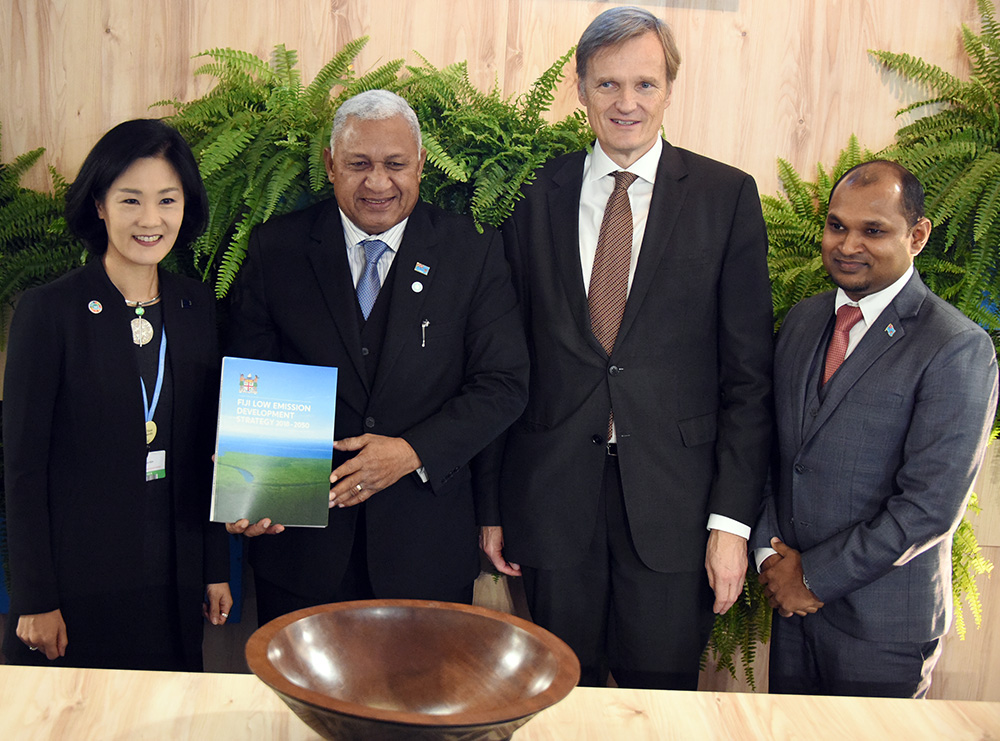
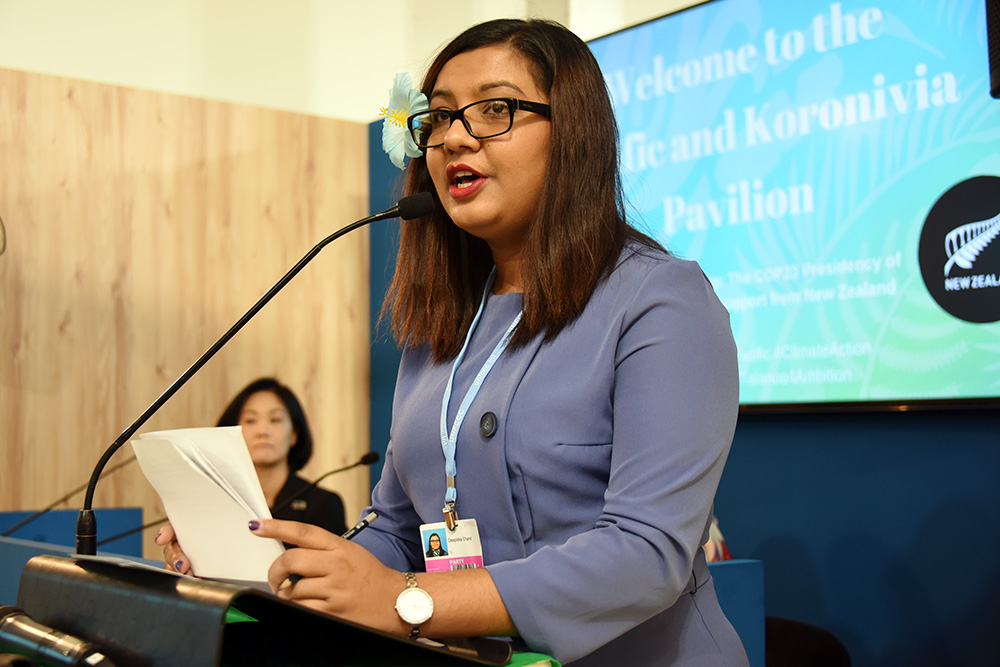
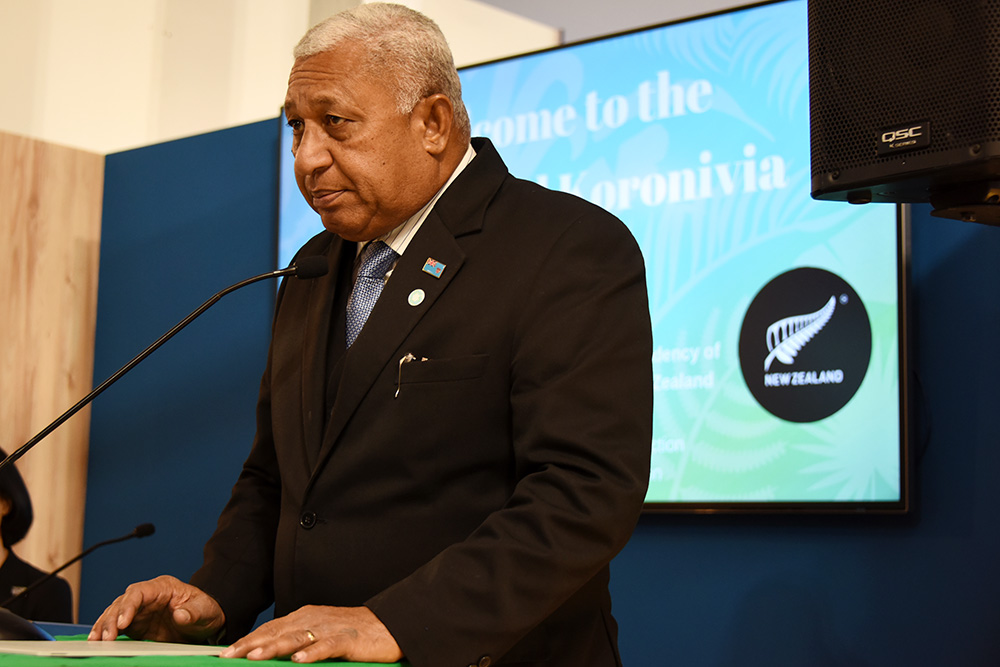
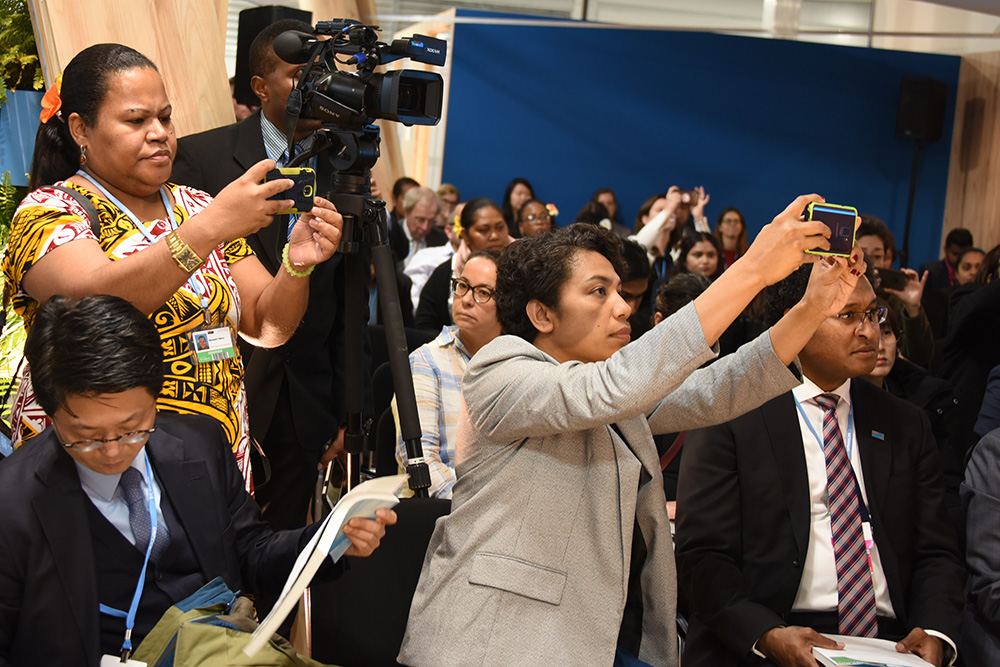
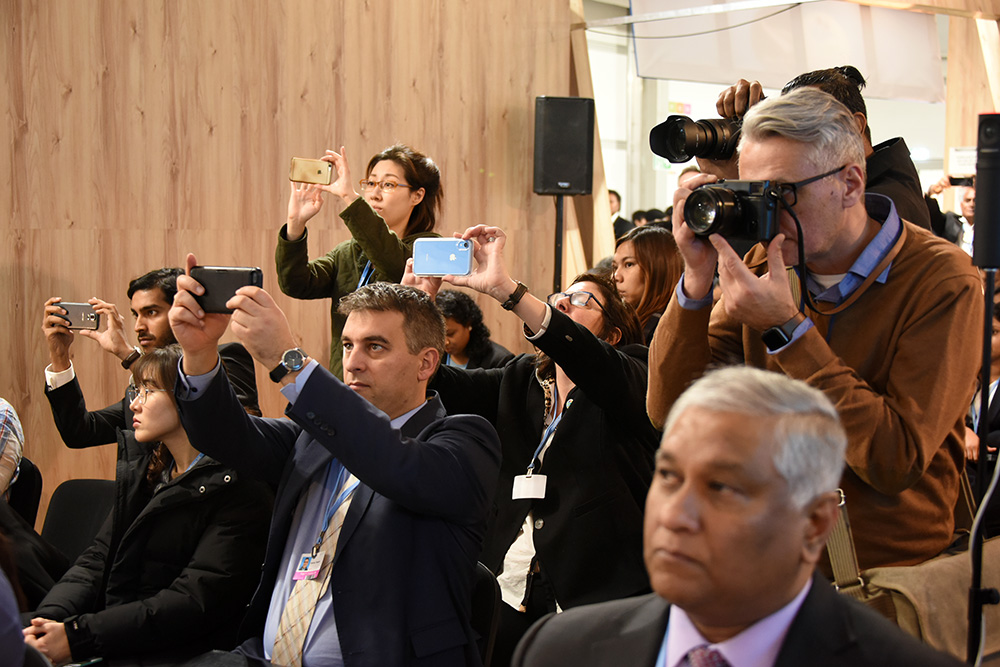
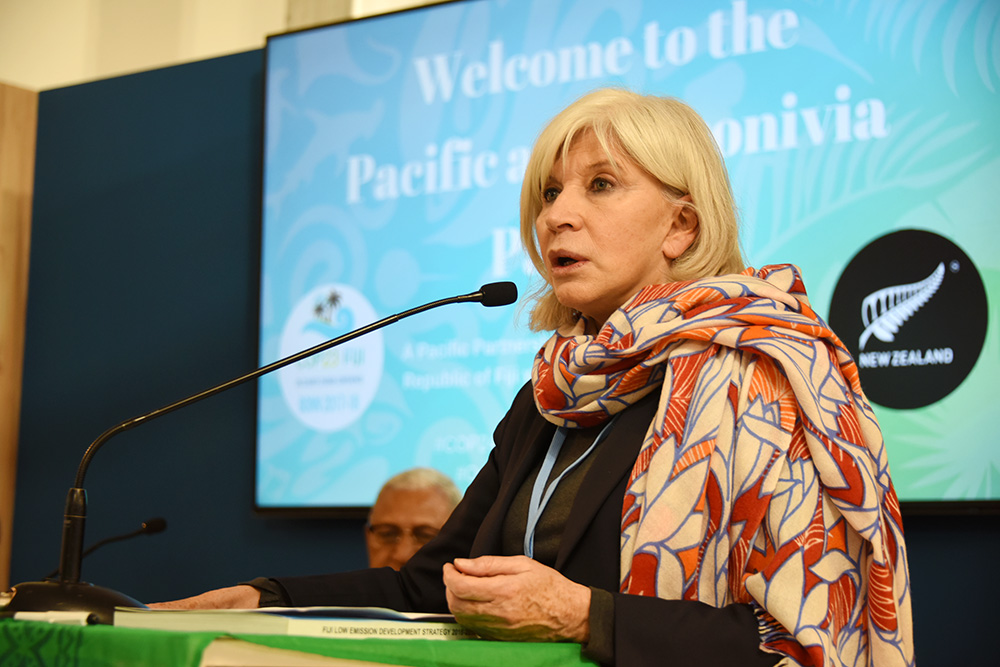
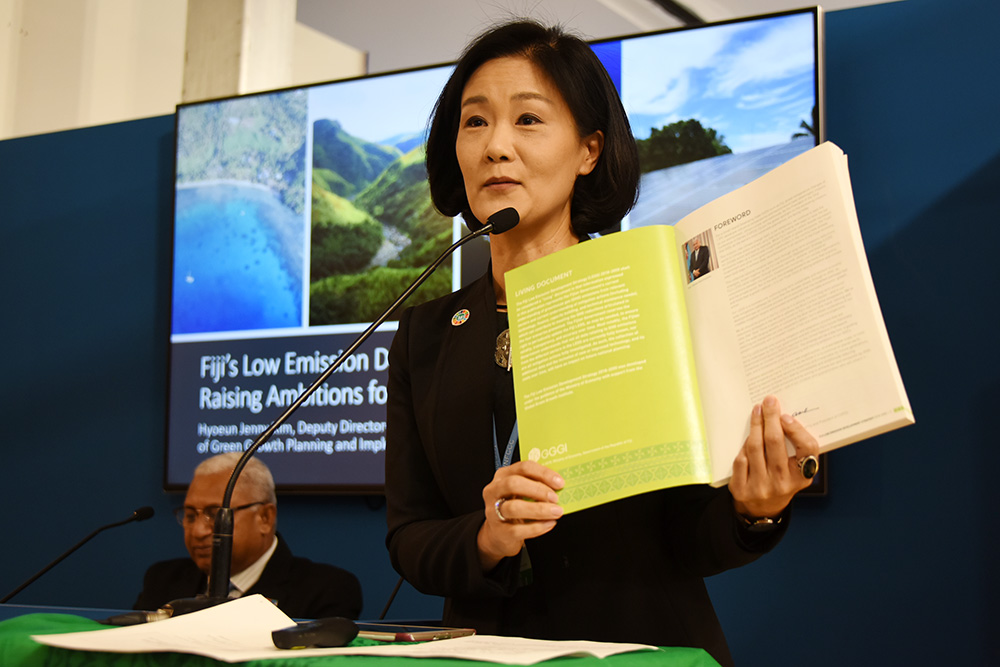
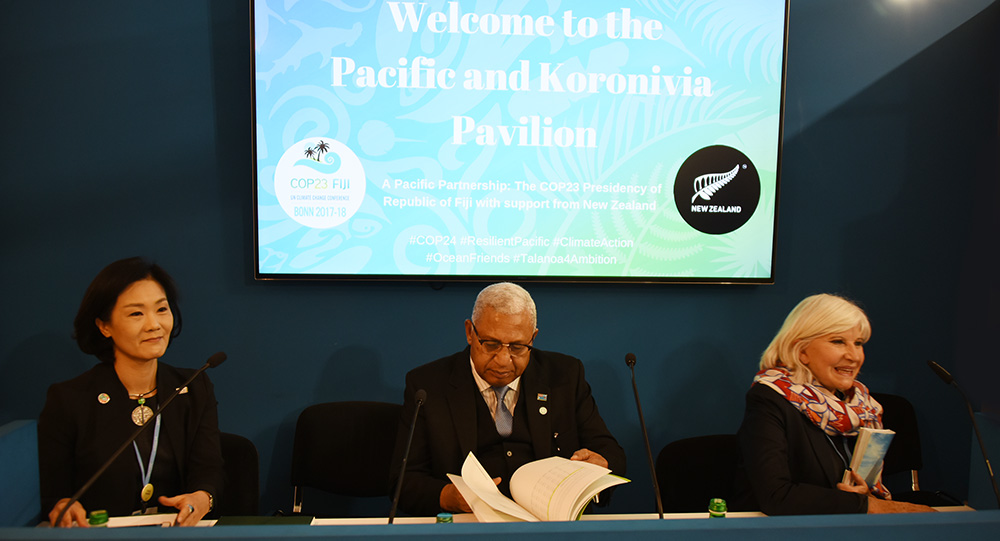
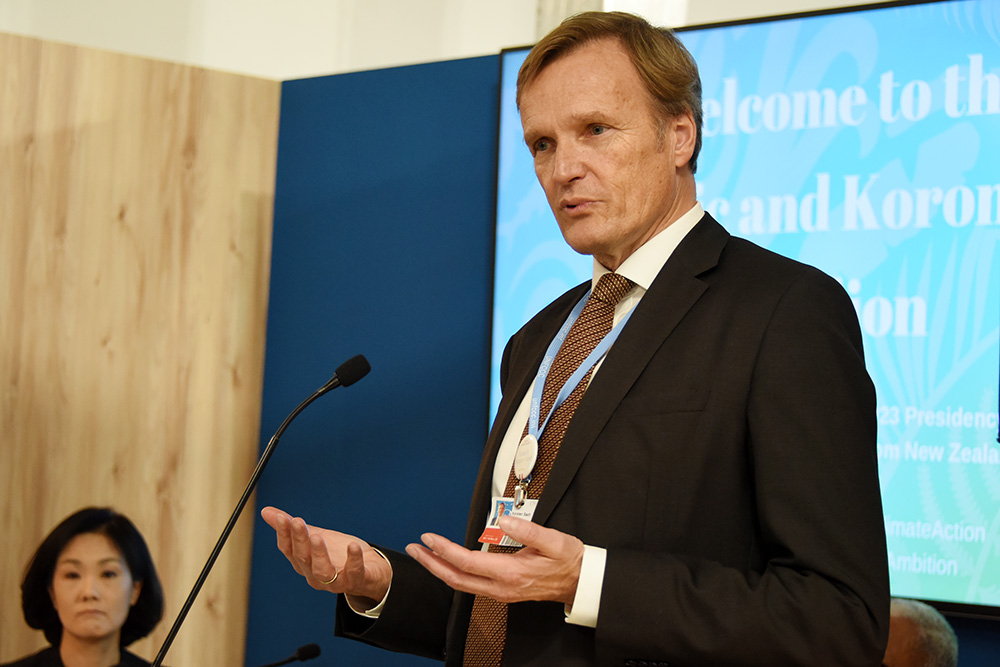
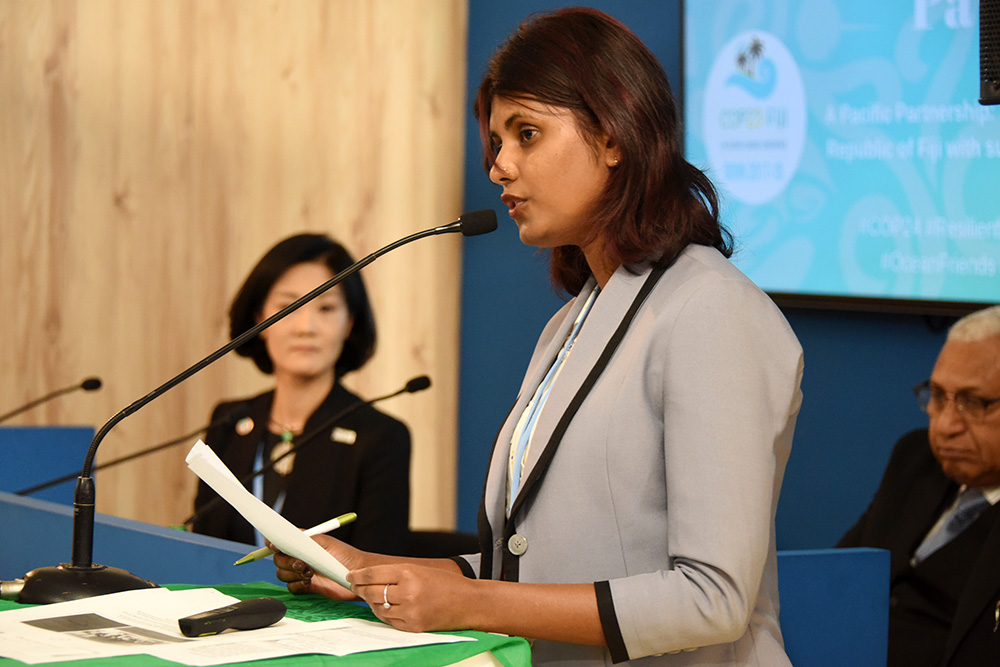
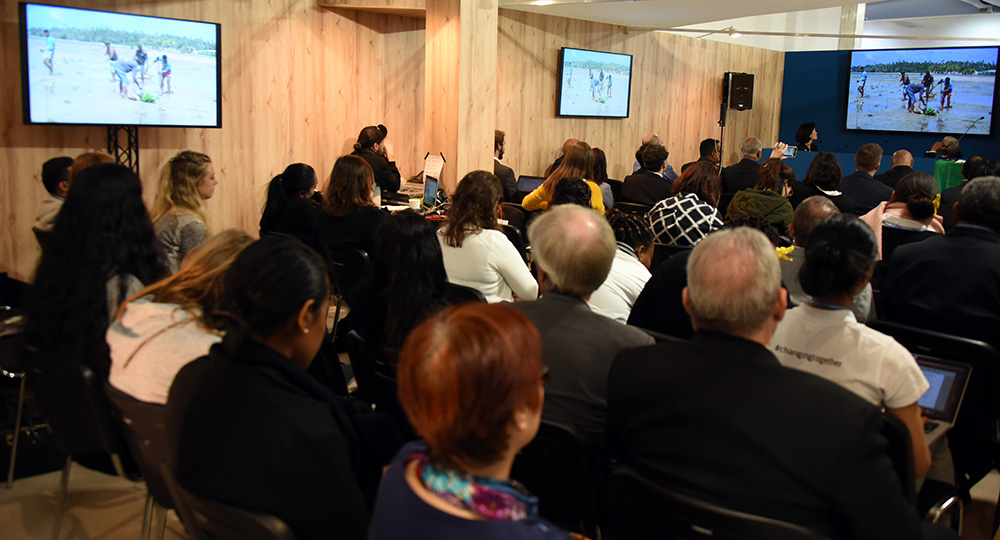
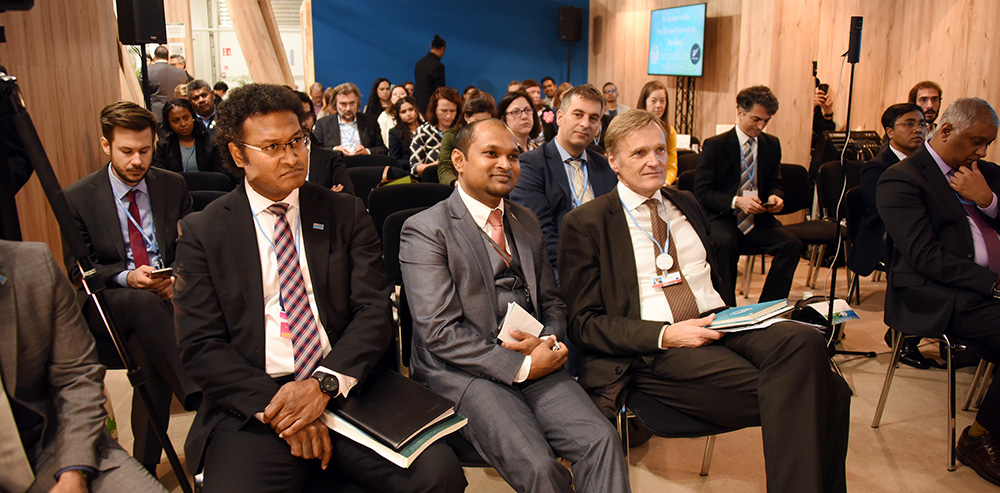
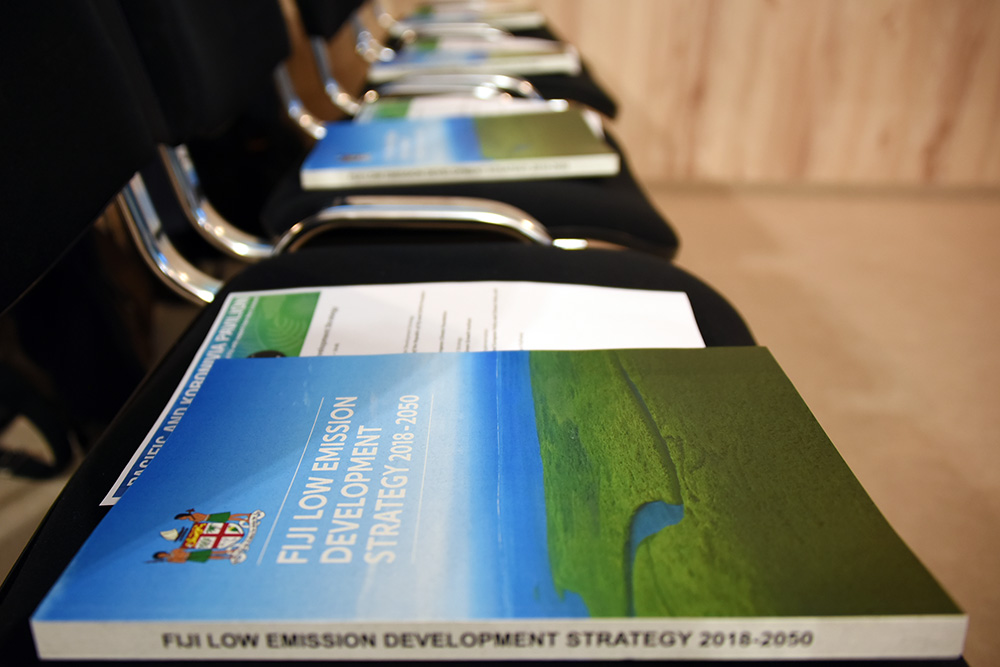
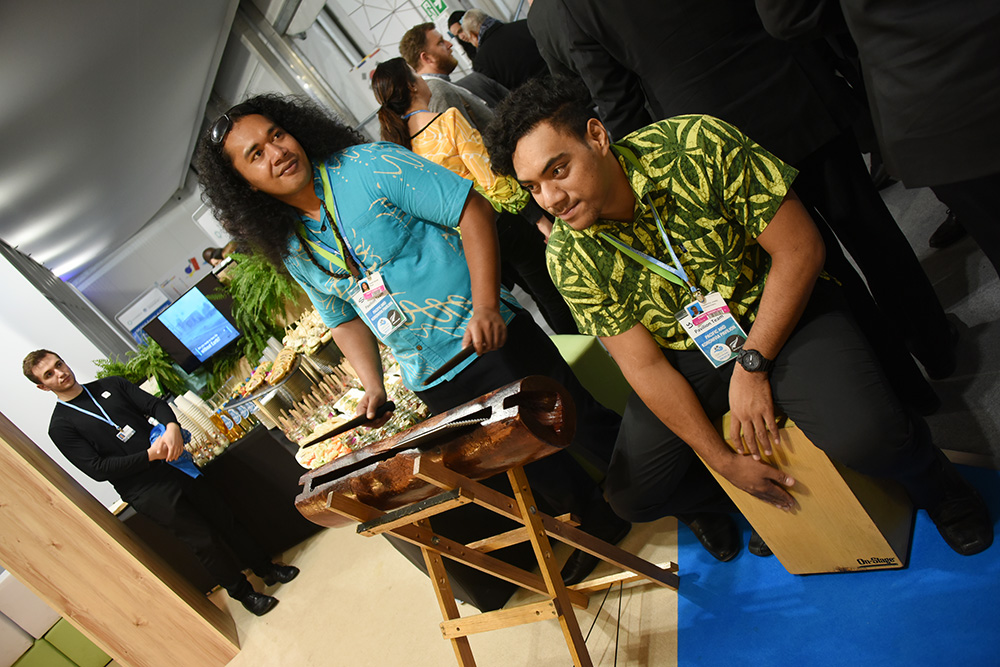
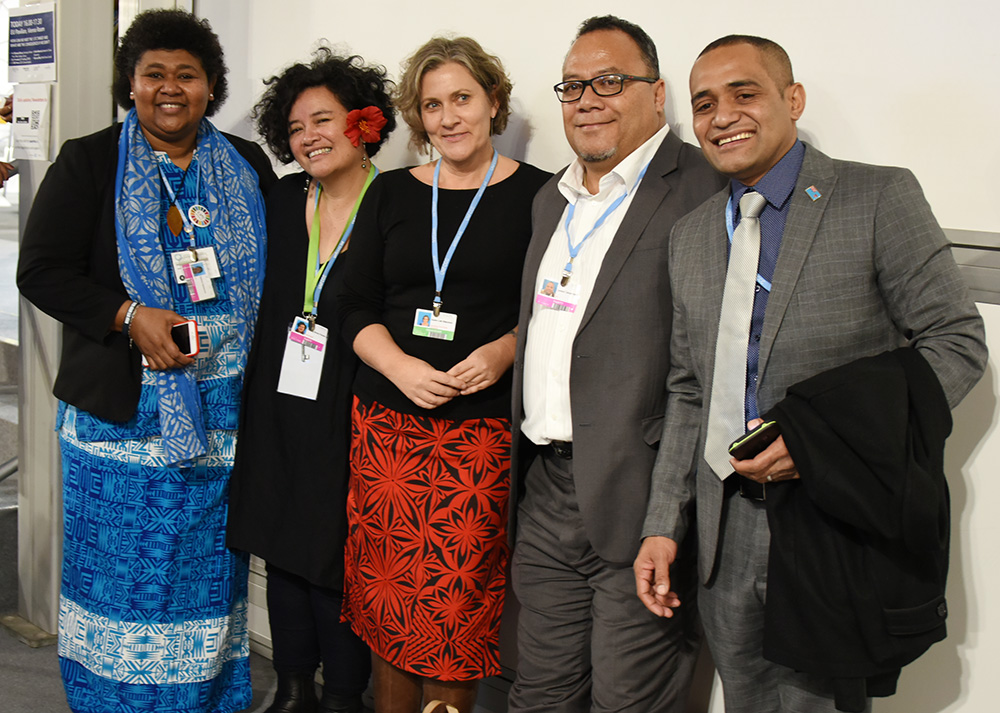
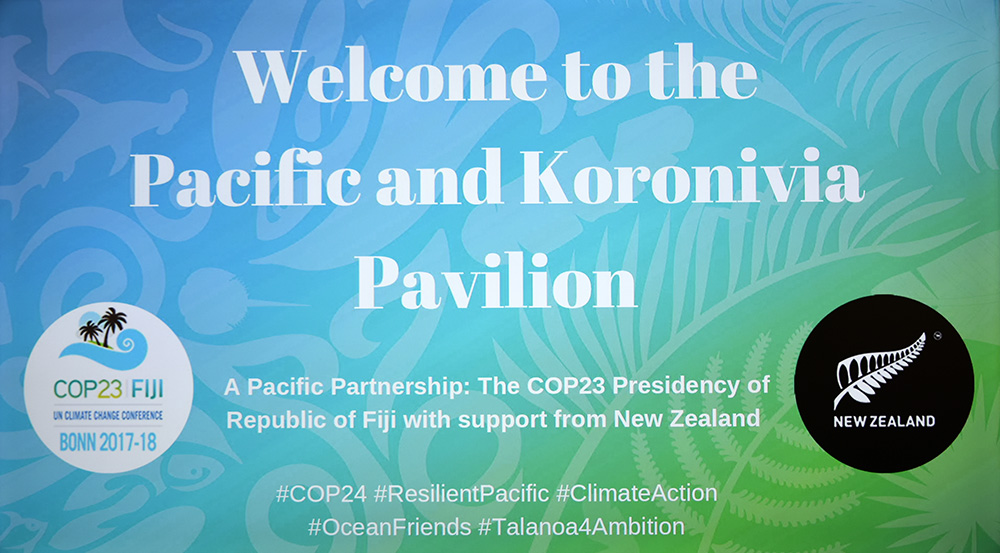
Building Knowledge on Climate-Smart Agriculture – Launch of the 4 E-learning Modules on Water, Soil, Crops and Livestock
Presented by the Food and Agriculture Organization of the UN (FAO), the World Bank, the Ministry of Environment, Italy, and the Federal Ministry of Food and Agriculture, Germany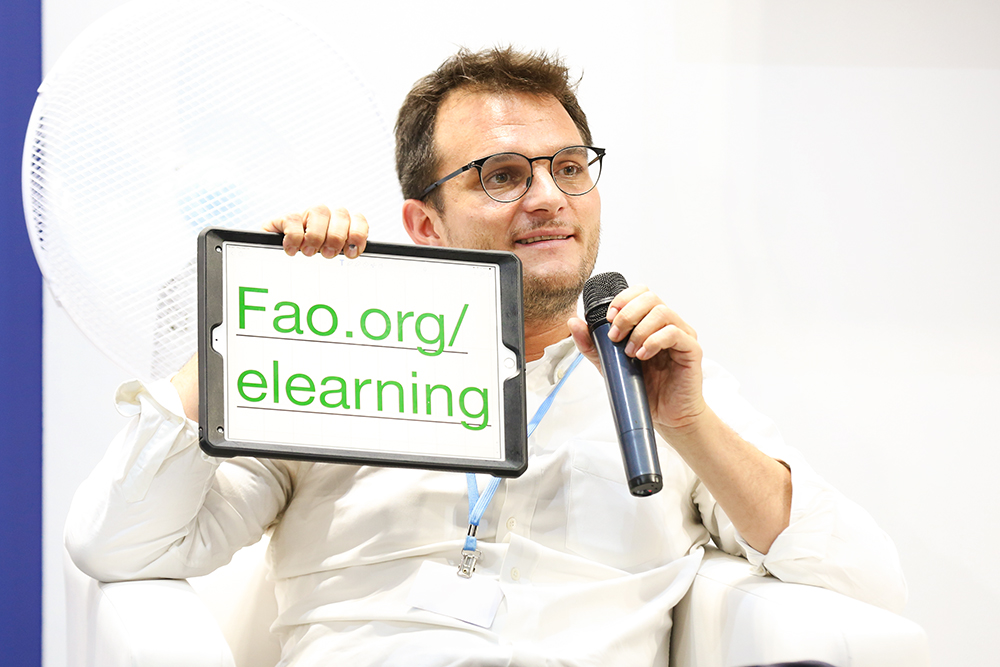
This event discussed the importance of knowledge and information for promoting climate-smart agriculture (CSA). Participants shared best practices for disseminating and encouraging the adoption of CSA, including by launching a series of new e-learning modules on the topic. Tobias Baedeker, World Bank, moderated the event.
In opening remarks, Zitouni Ould-Dada, FAO, emphasized how food systems need to change in response to climate change, which is affecting both crop productivity and quality. He said the adoption of CSA is one such change, saying that it requires knowledge- and practice-sharing with and among farmers. Referring to the CSA e-learning courses that have been developed by FAO and partners, Ould-Dada stressed the importance of making them free, accessible, and as widely distributed as possible so that the maximum number of farmers can benefit from them. He underscored the need to advance integrated approaches such as agroecology and agroforestry that see food production not in isolation but as connections to biodiversity, health and sustainable production in consumption.
Martien Van Nieuwkoop, World Bank, shared several insights from a recent World Bank report that tried to bring CSA to life by synthesizing 30 CSA country profiles to reveal key steps for moving forward, namely:
- technologies considered to be “climate-smart” are highly diverse, and considerable opportunity exists for tailoring CSA to farmers’ needs;
- there is growing convergence on where and when CSA can make the biggest difference, particularly on the value of improved water management, crop stress tolerance, intercropping, using organic inputs, and practicing conservation agriculture;
- while trade-offs exist, most CSA technologies demonstrate synergies between productivity, adaptation and mitigation, for exmaple, with silvopasture; and
- training and information were identified as the single largest barrier category to CSA, affecting almost 90% of all interventions.
Francesco La Camera, Director General, Ministry of Environment, Land and Sea, Italy, emphasized the need for a strong transparency system to emerge from COP 24. He noted Italy’s preference to work through bilateral rather than multilateral arrangements, and for supporting countries that are most severely impacted by climate change, such as those in Africa and small island states. He stressed the importance of CSA for ensuring that all people have the chance to live decent lives in their own countries, rather than being forced to migrate. He said training is crucial to this and highlighted a partnership between Italy, FAO and the UN Development Programme to open a new center for climate and sustainable development in Africa, which will be operational from the end of January 2019.
In the ensuing discussion, participants and speakers addressed the fact that training is necessary but not sufficient for adopting CSA, how CSA is not an entirely new concept since local knowledge can also be considered “climate-smart,” and the pros and cons of bilateral and multilateral financing.
In a second panel discussion, Bernhard Osterburg, Thünen Institute, Matthieu Arnoult, University of Reading, and Federica Matteoli, FAO, shared examples of agricultural knowledge generation initiatives. Osterburg highlighted a good example of cooperative watershed protection and awareness-raising in Germany. Arnoult discussed econometric research on food demand in the UK that ended up generating effective insights for policymakers. Matteoli shared an example of using local radio to share CSA practices in the Democratic Republic of the Congo, and noted many examples where reports and documents are produced only to sit on shelves and never reach policymakers or farmers.
In the discussion, panelists considered: how indigenous and scientific knowledge can be combined through CSA; the role of non-governmental organizations in sharing knowledge; why knowledge-sharing should be a constant process rather than a one-off; and how technology can be leveraged to disseminate knowledge, including through e-courses, radio and mobile phones. Matteoli emphasized that, whatever the means of dissemination, knowledge must be shared in languages appropriate for the audience.
Mi Nguyen, Co-Chair, Global Alliance for Climate-Smart Agriculture (GACSA), provided closing remarks, stressing that the best way to bring CSA to life is by involving all types of farmers at every stage of the process. She noted that GACSA is working at the regional level through eight CSA alliances and hopes to be a clearinghouse for solutions developed around the world. Nguyen closed by underlining the importance of creating actionable knowledge, saying that only 10% of knowledge generated is ever put into practice.
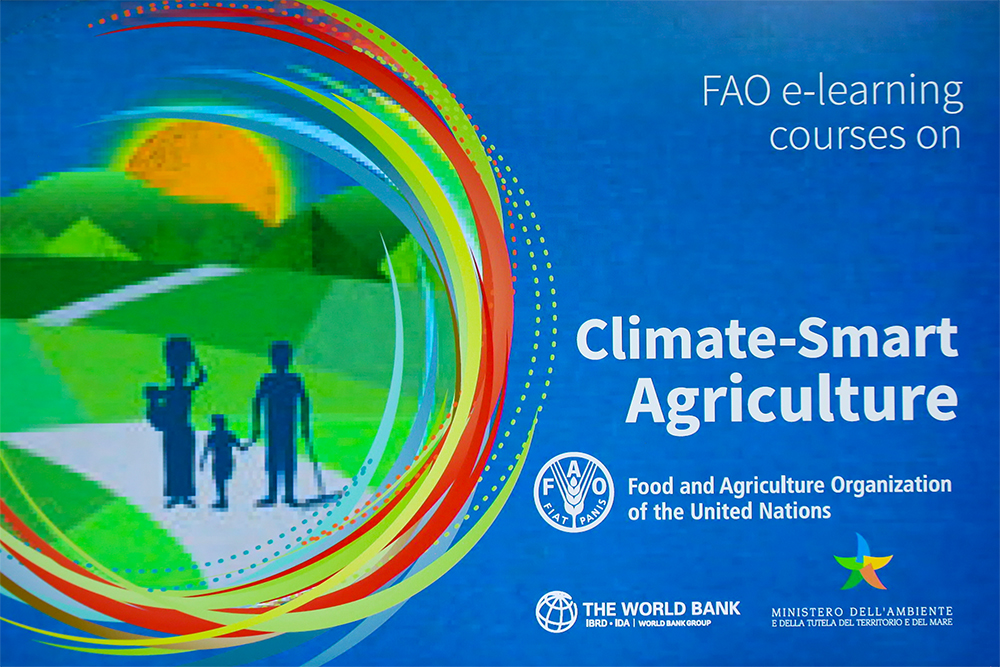
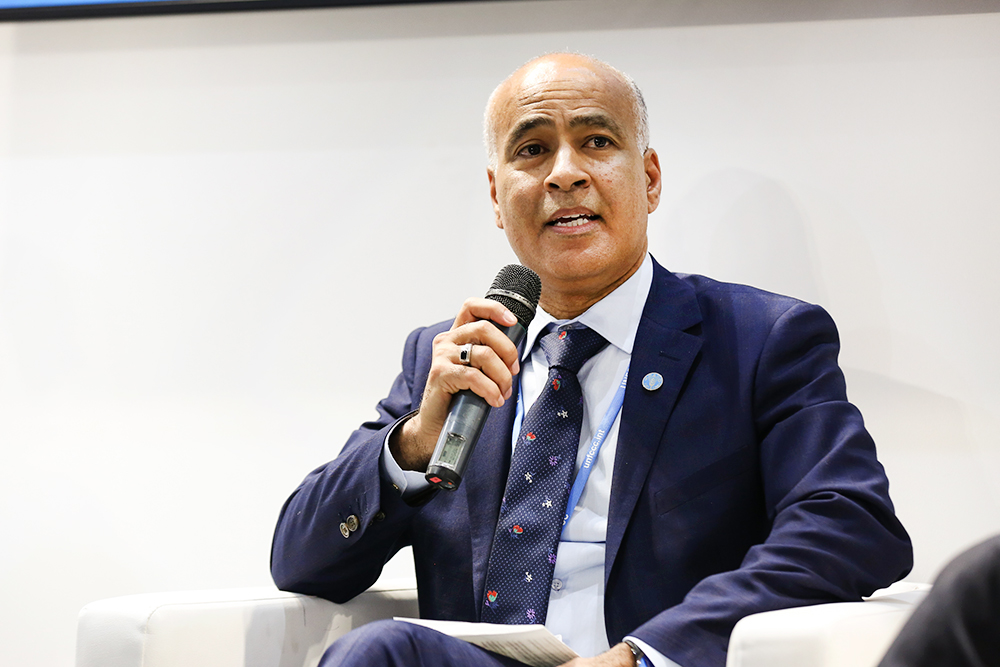
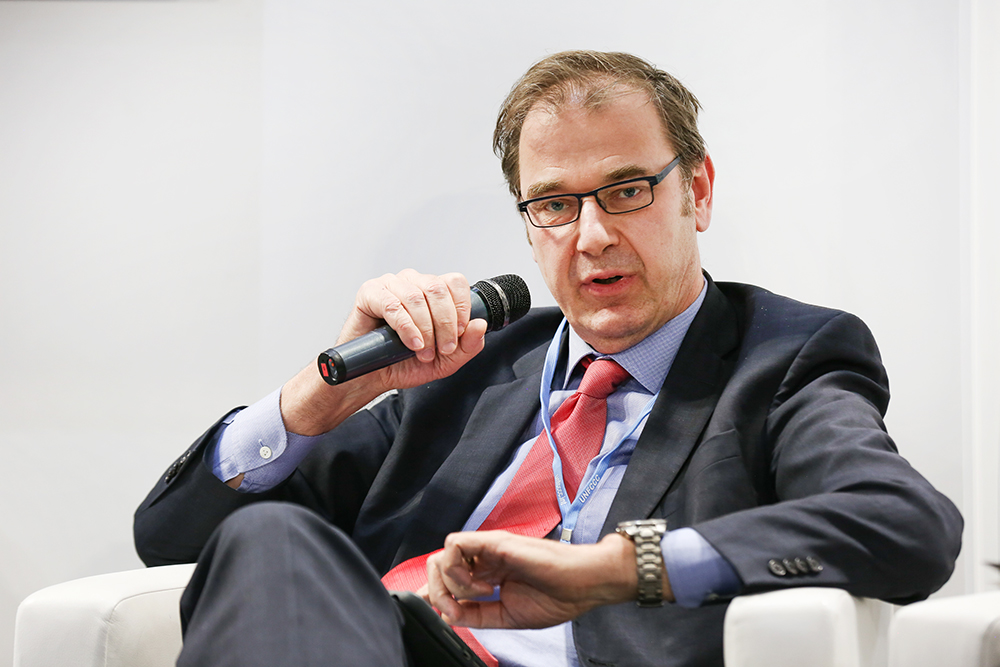
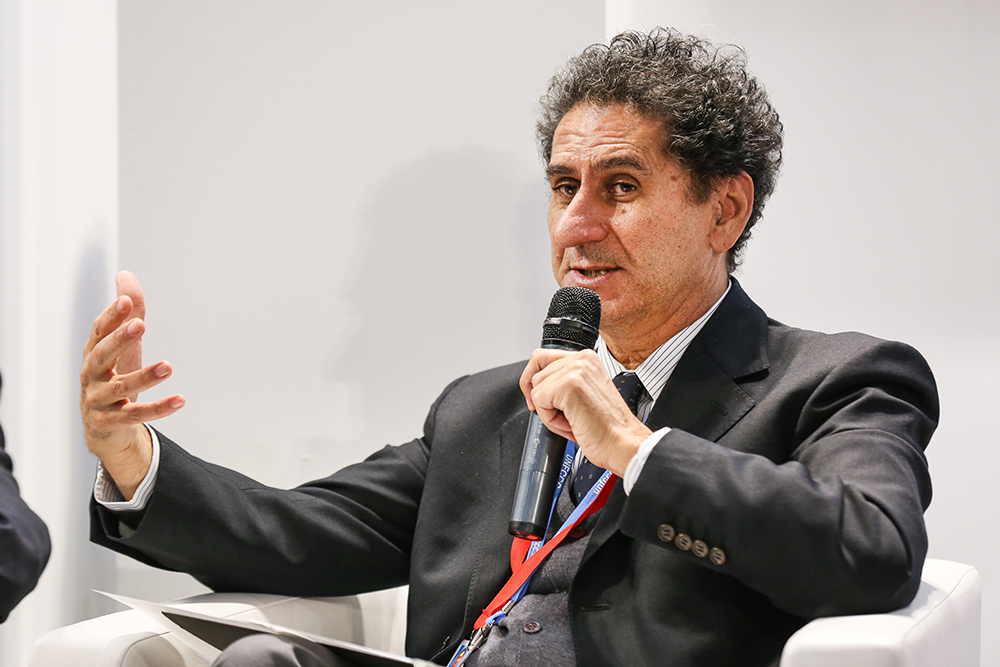
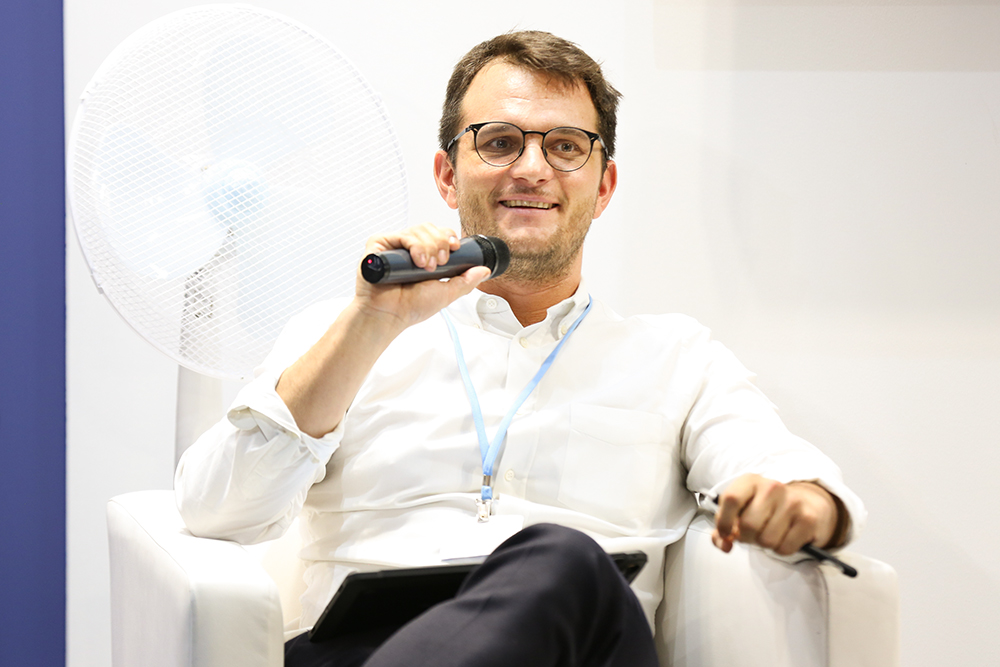
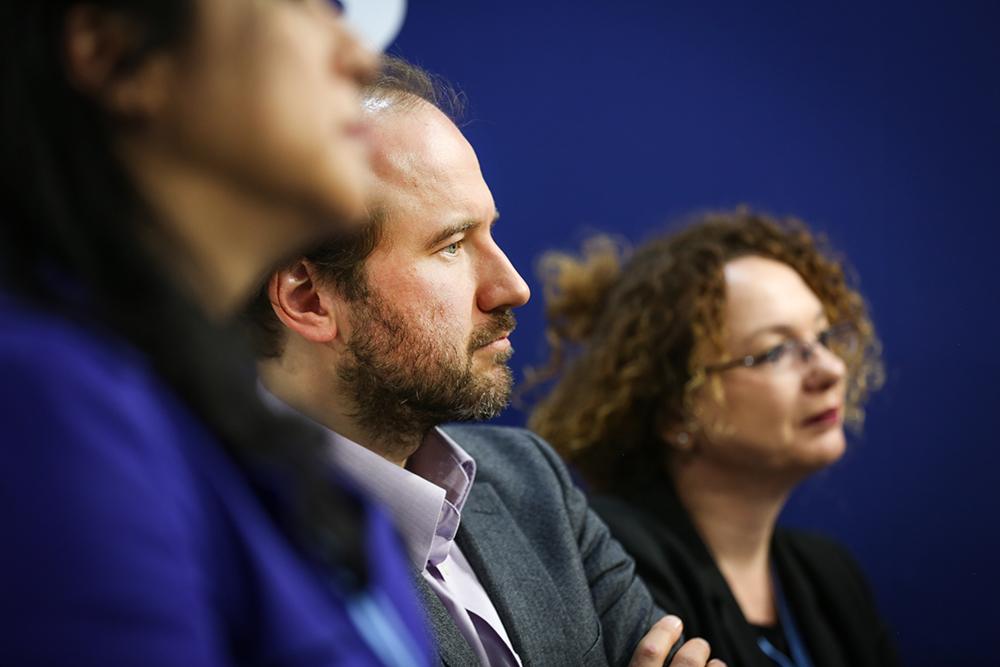

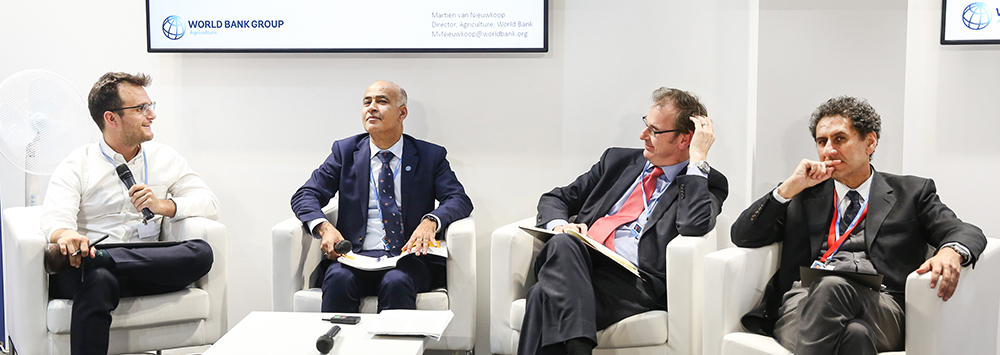
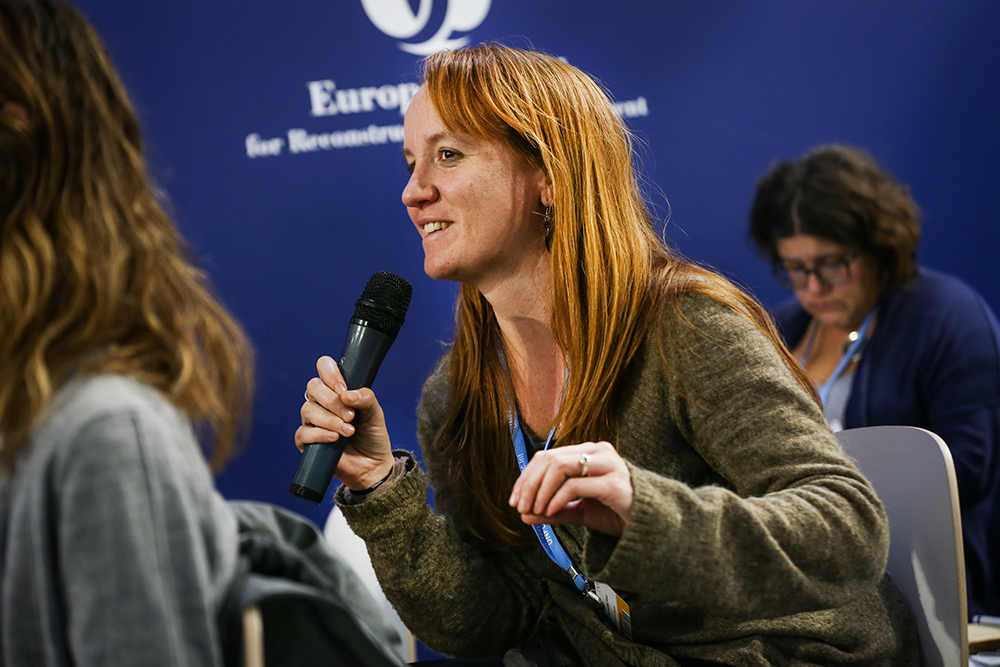
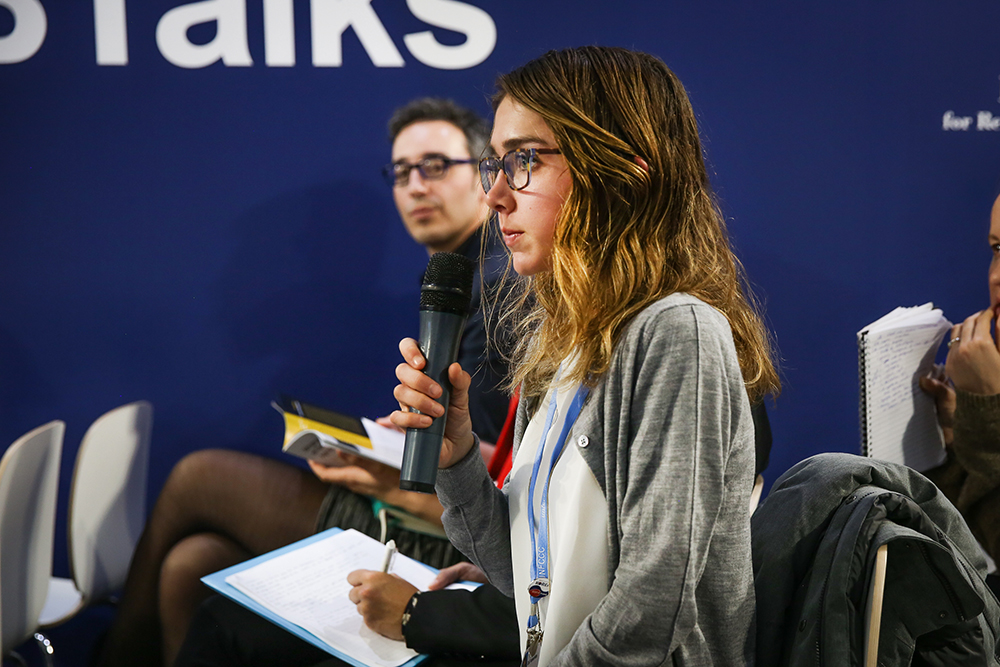
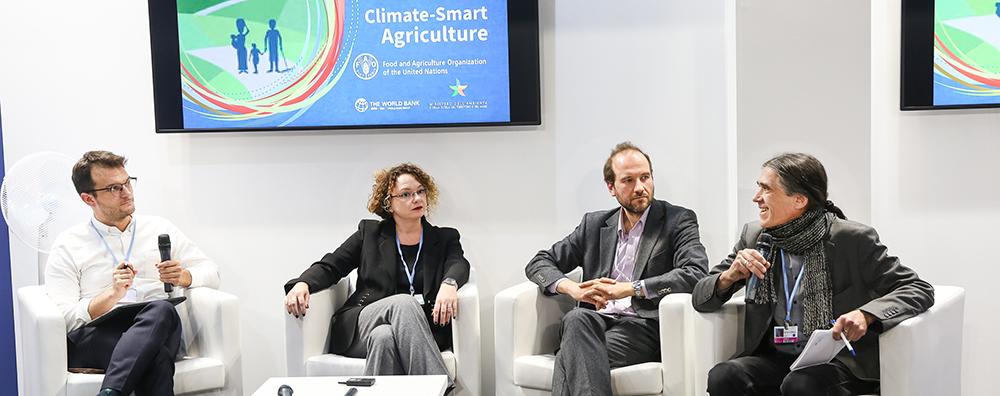
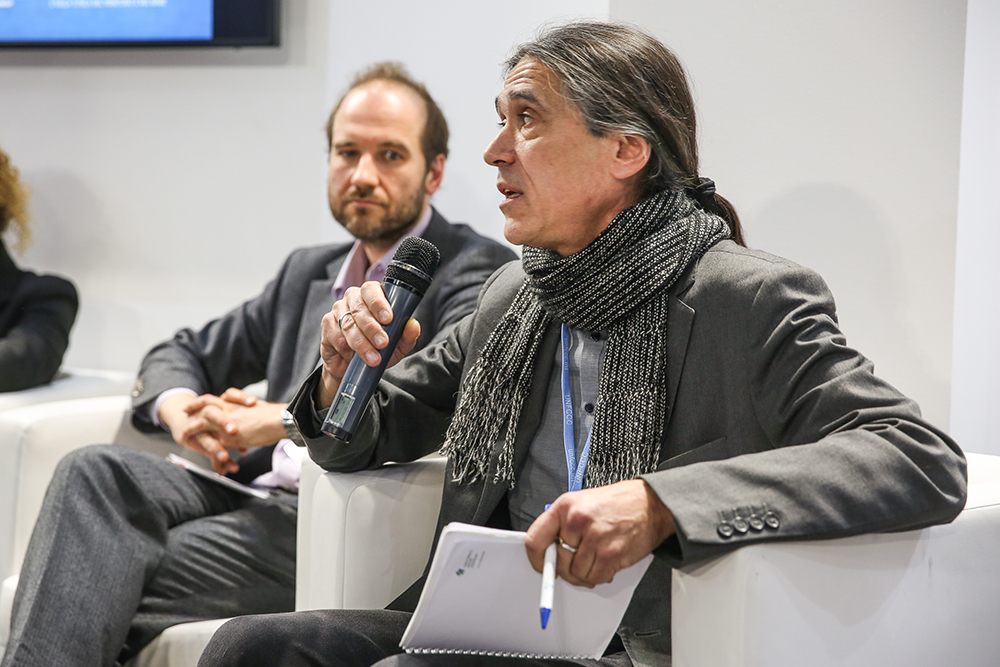
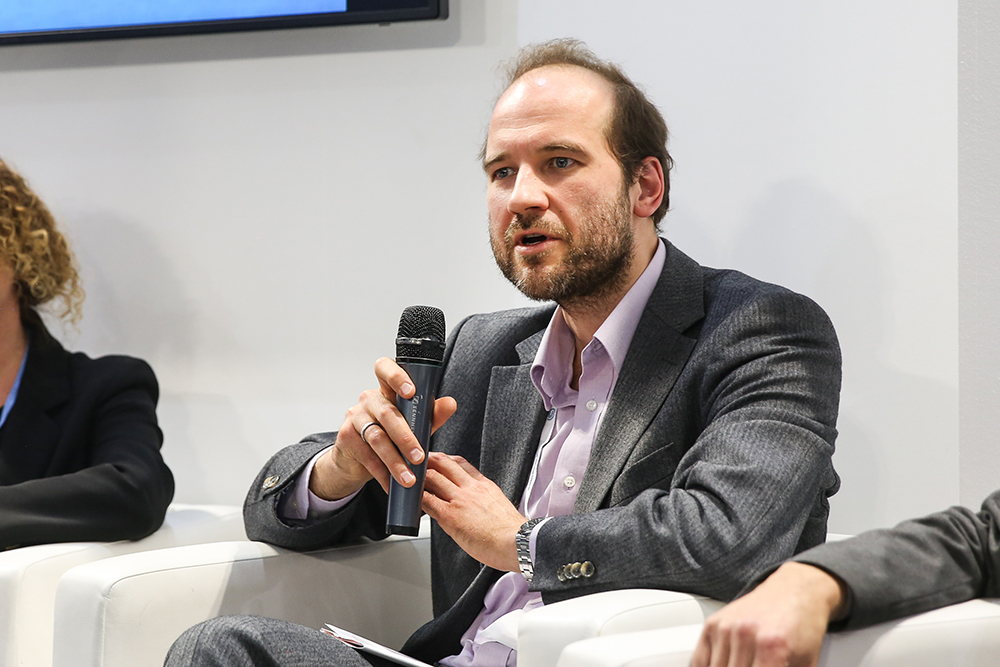
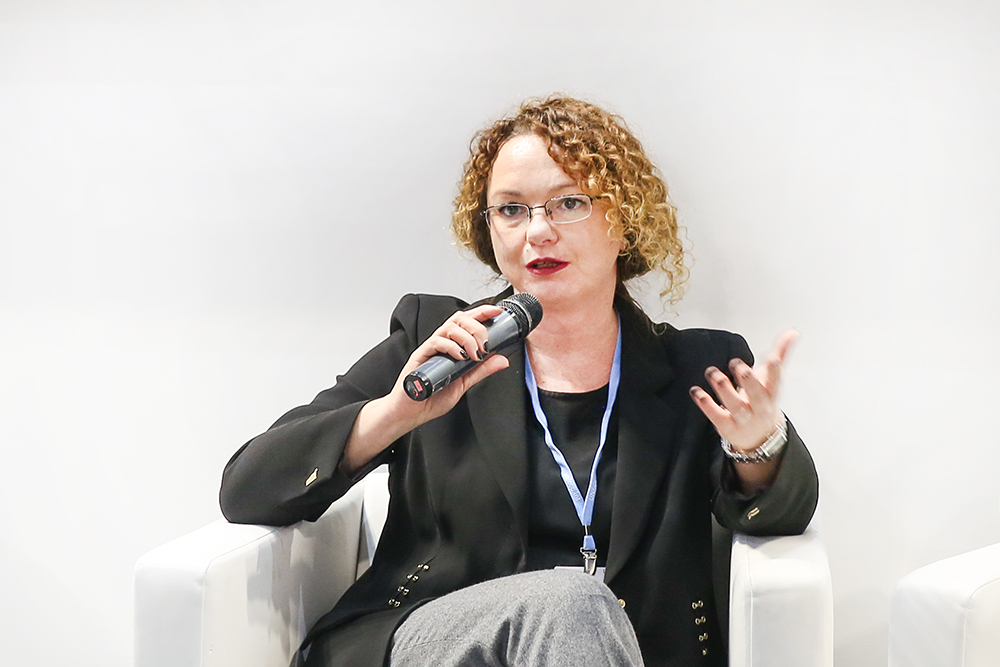

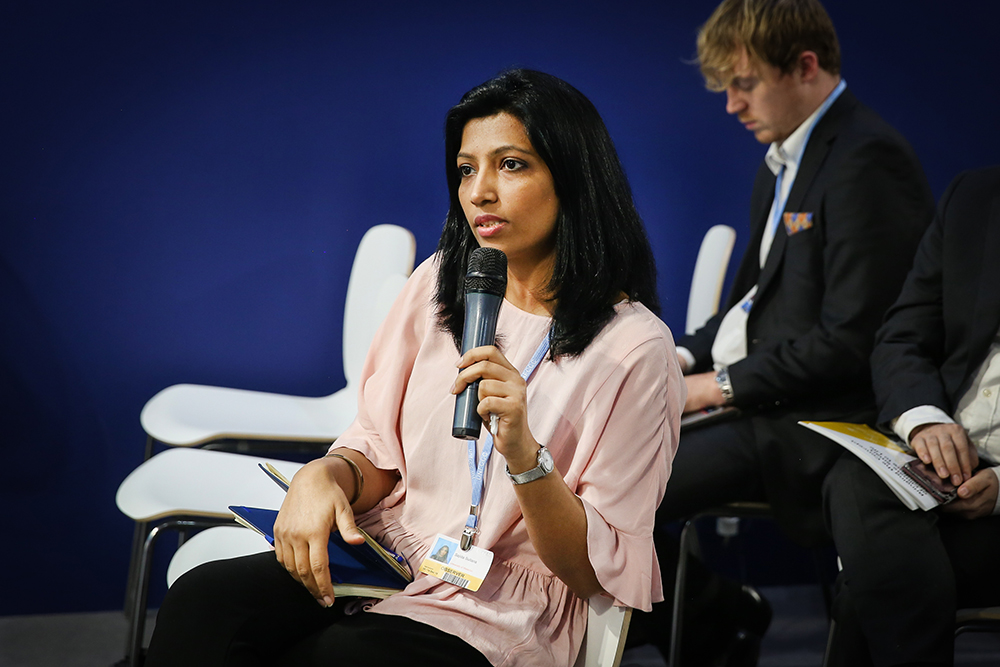
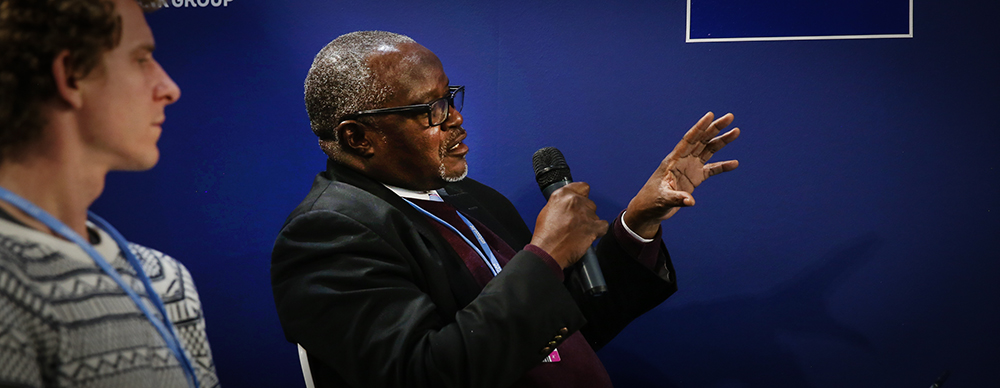
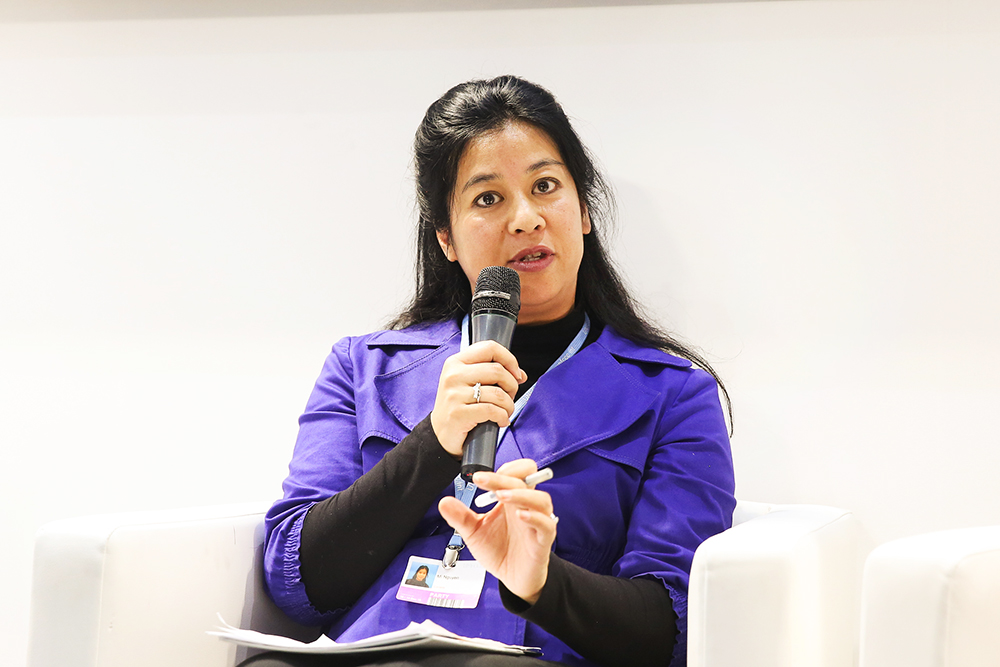
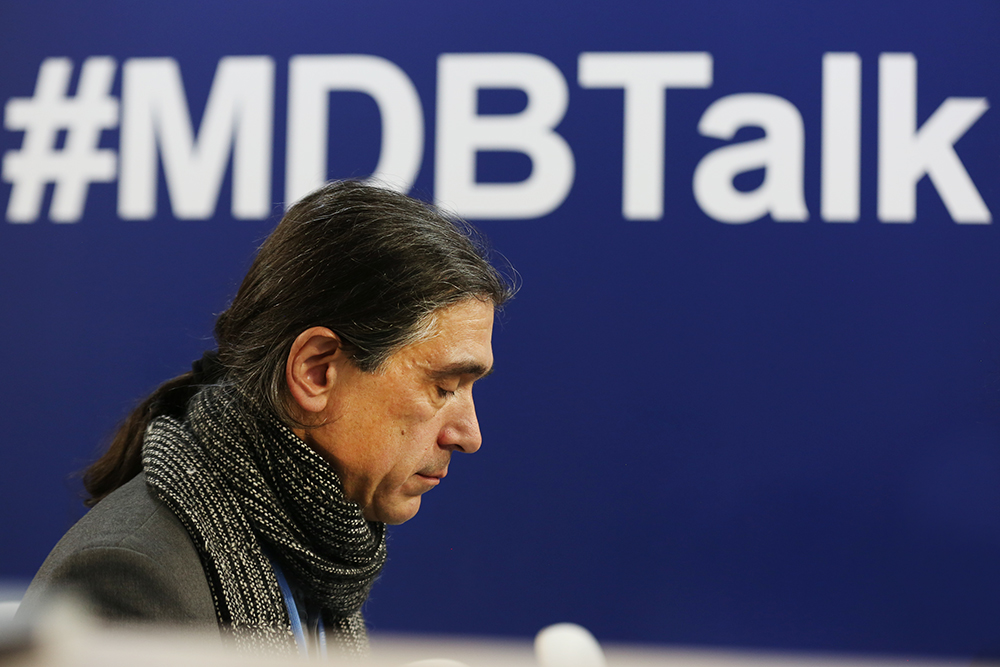
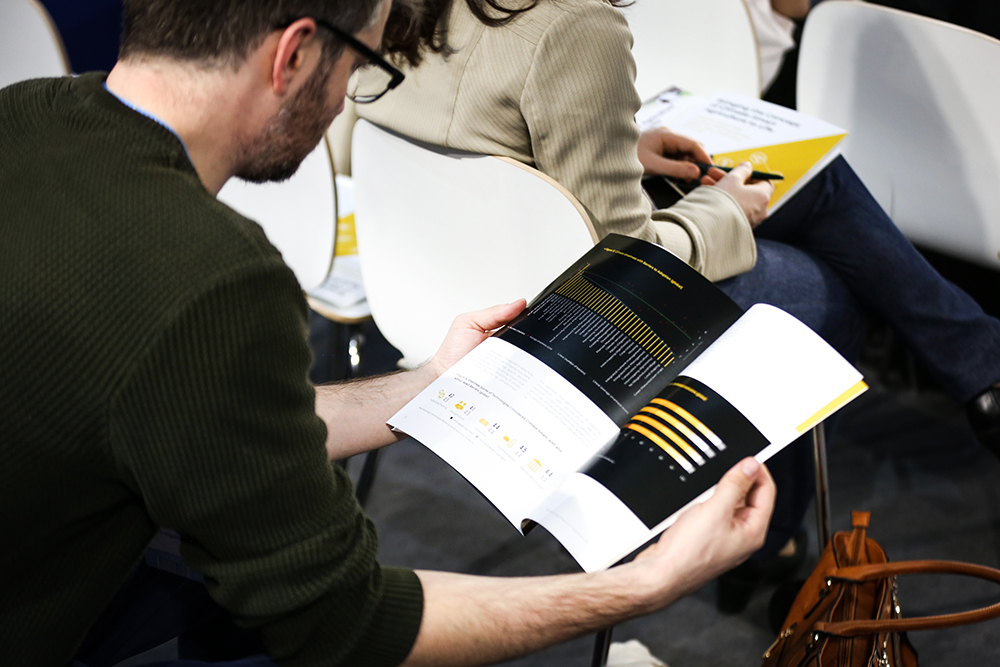


Around the Venue
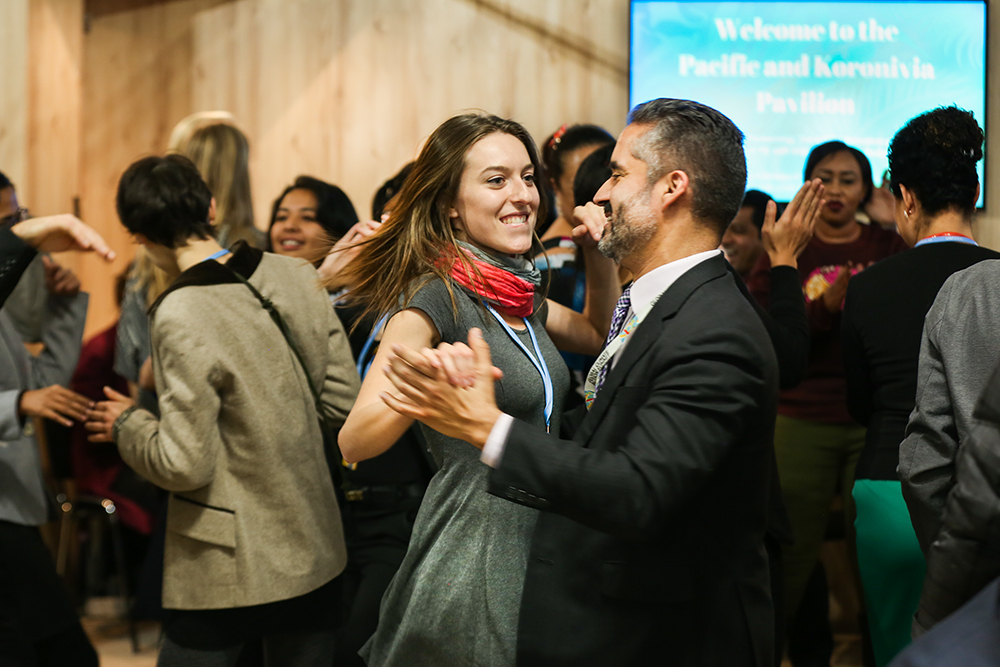
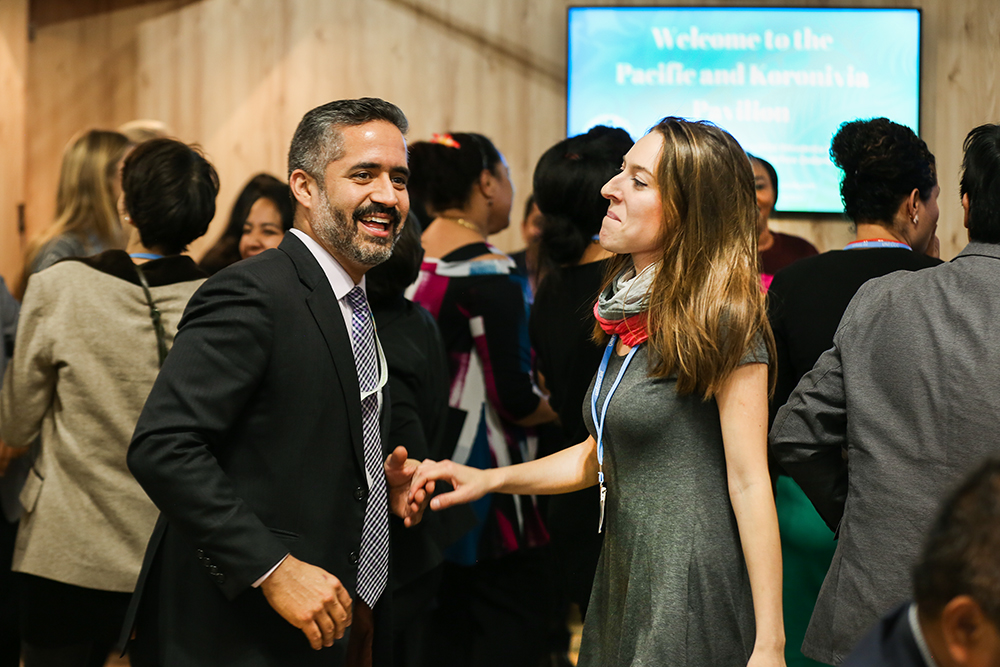
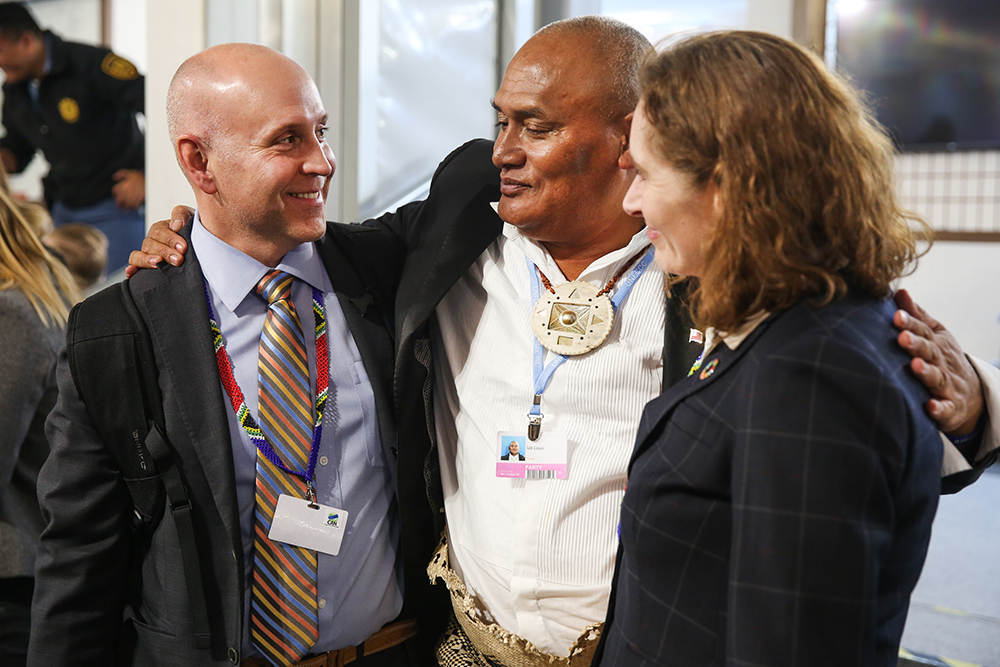

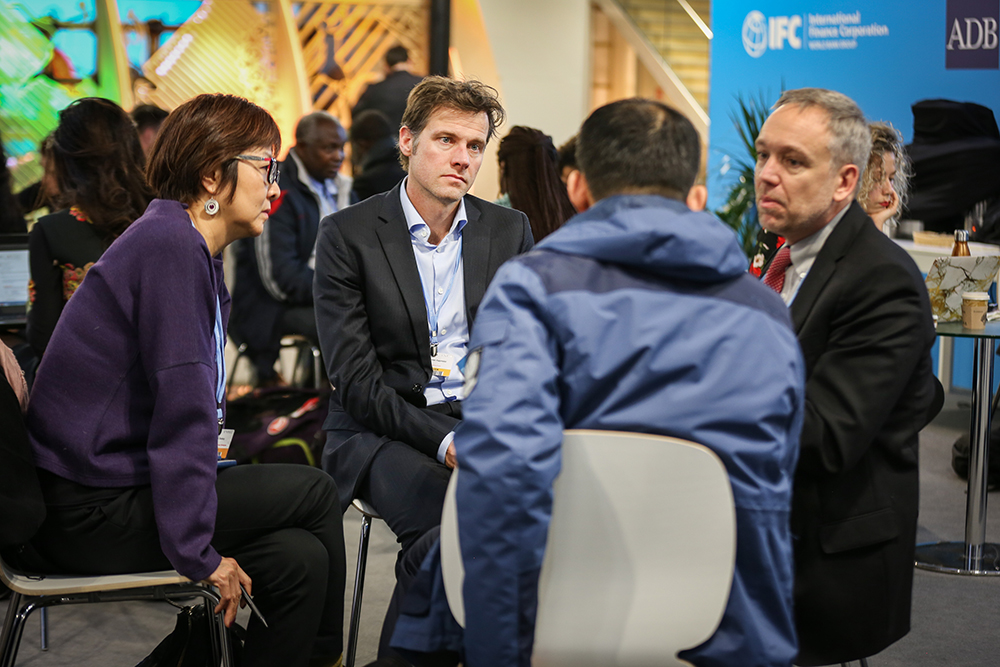

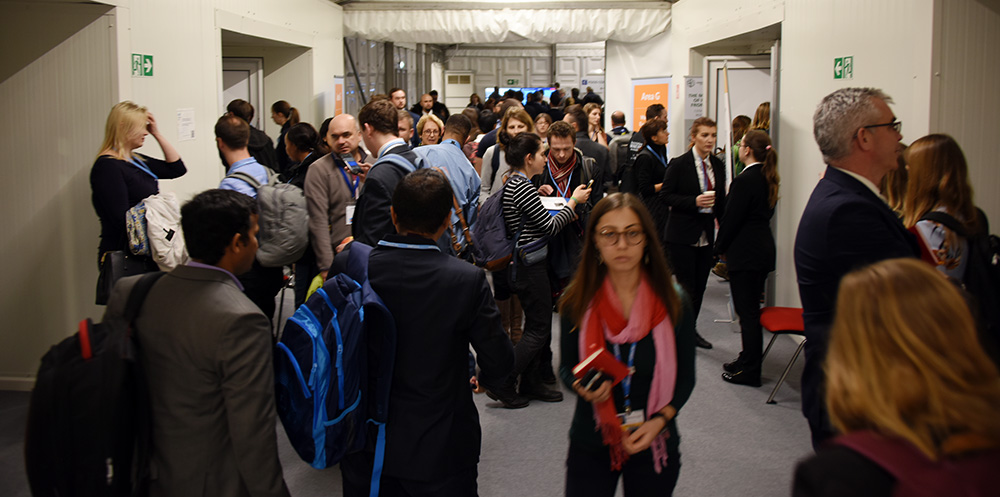
Resources for the Katowice Climate Change Conference – December 2018
- Website for the Katowice Climate Change Conference – December 2018
- Website for Side Events and Exhibits for the Katowice Climate Change Conference – December 2018
- Schedule of Side Events of the Katowice Climate Change Conference – December 2018
- Overview Schedule for the Katowice Climate Change Conference – December 2018
- Joint Reflections Note by the Co-Chairs of the APA, SBSTA, and SBI
- COP 24 Presidency Website
COP 24
CMP 14
CMA 1-3
APA 1-7
SBI 49
SBSTA 49
IISD ENB/ENB+ Meeting Coverage
- 48th Session of the Intergovernmental Panel on Climate Change (IPCC-48), 1-6 October 2018, Incheon, Republic of Korea
- Bangkok Climate Change Conference - September 2018, 4-9 September 2018, UN Conference Centre (UNCC), Bangkok, Thailand
- Bonn Climate Change Conference - April/May 2018, 30 April - 10 May 2018, Bonn, Germany
- IPCC-47, 13-16 March 2018, Headquarters of the UN Educational, Scientific and Cultural Organization (UNESCO), Paris, France
- Fiji / Bonn Climate Change Conference 2017, 6-17 November 2017, Bonn, Germany
- IPCC-46, 6-10 September 2017, Montreal, Canada
- Bonn Climate Change Conference - May 2017, 8-18 May 2017, Bonn, Germany
- IPCC-45, 28-31 March 2017, Guadalajara, Mexico
- Marrakech Climate Change Conference - November 2016, 7-18 November 2016, Marrakech, Morocco
- ENB Coverage of Climate Change Meetings
IISD Resources
- CLIMATE-L - A Mailing List for News on Climate Change Policy
- SDG - A Mailing List for News on Sustainable Development Policy
- SDG Update Newsletter - A compilation of news, commentary and upcoming events published on the SDG Knowledge Hub
- SDG Knowledge Hub - An Online Resource Center for News and Commentary Regarding the Implementation of the United Nations’ 2030 Agenda for Sustainable Development, including all 17 Sustainable Development Goals (SDGs)
- Linkages Update - International Environment and Sustainable Development News